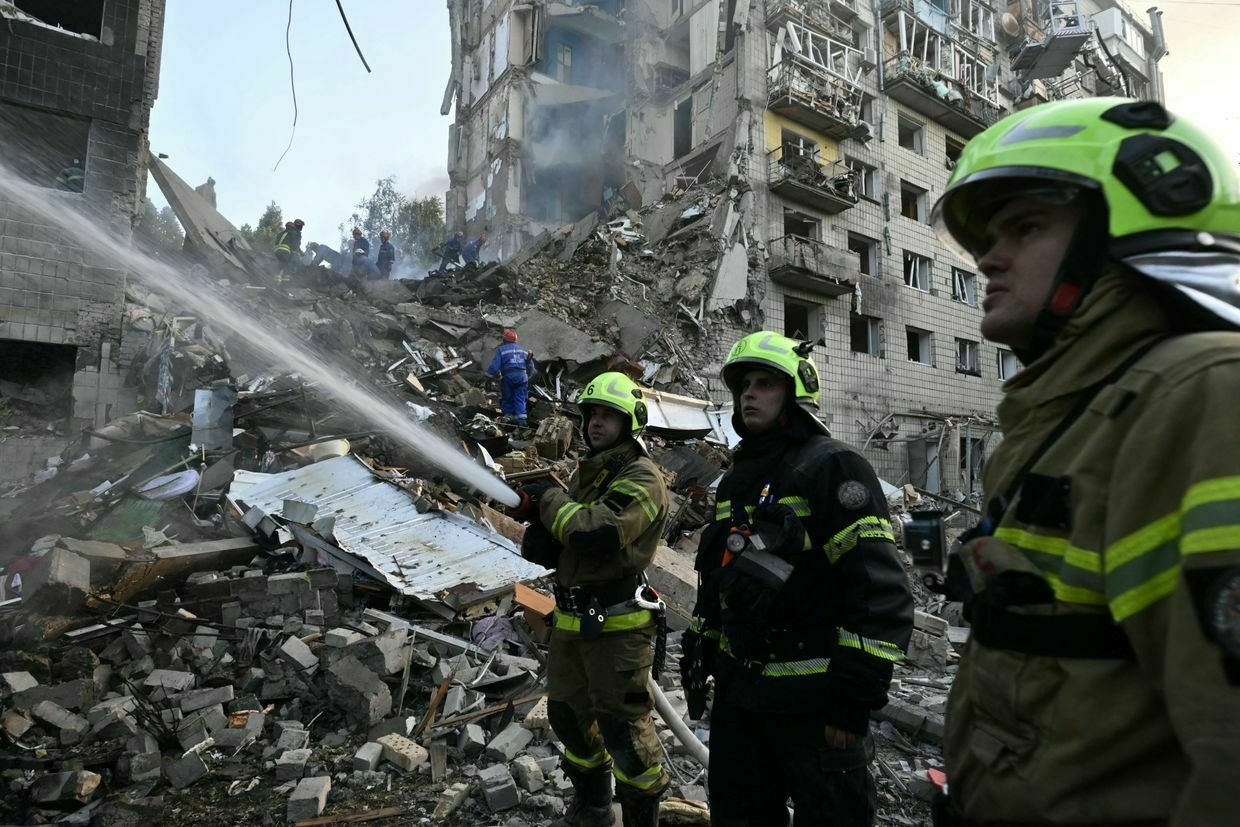-
Destroying the enemy and supporting the infantry: how Ukrainian drones Vampire work #shorts
-
EU postpones lowering price cap for Russian oil amid tensions in Middle East, Politico reports
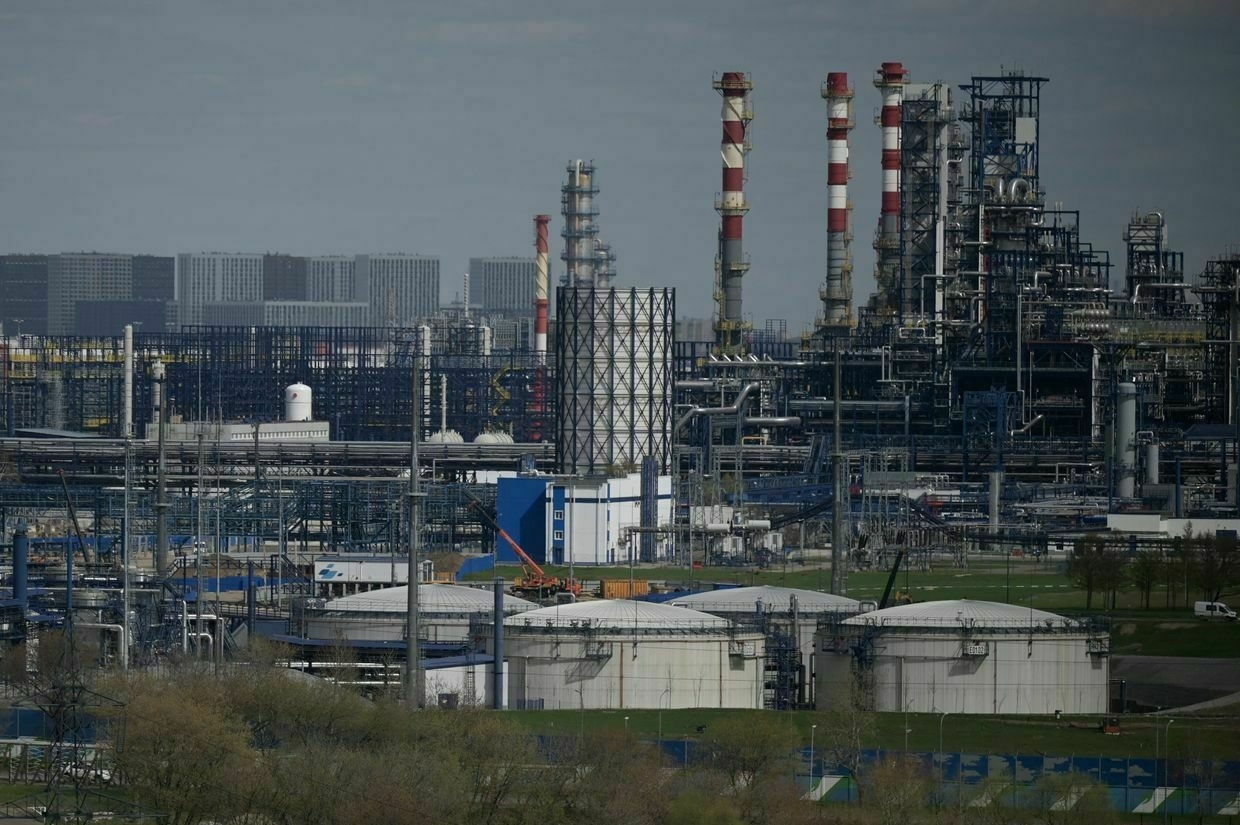
The European Union has postponed a move to lower the existing price cap on Russian oil, after concerns that the Iran-Israel conflict could lead to higher prices, Politico reported on June 20, citing unnamed diplomatic sources.
The price cap, introduced in December 2022 as a measure to limit the Kremlin’s ability to finance its war against Ukraine, prohibits Western companies from shipping, insuring, or otherwise servicing Russian oil sold above $60 per barrel.
Ukraine has been calling on Western partners to lower the price cap on Russian oil from $60 to $30 per barrel. Meanwhile, two diplomats told Politico that the escalation of the conflict between Iran and Israel would make it impossible to impose new restrictions.
“The idea of lowering the price cap is probably not going to fly because of the international situation in the Middle East and the volatility,” said one diplomat on the condition of anonymity.
The issue of reducing the price cap on Russian oil was discussed during the Group of Seven (G7) summit, which was held June 15-17 in Canada. However, the participants failed to reach a consensus.
“At the G7 meeting this week, it was agreed by all the countries they would prefer not to take the decision right now,” the diplomat added. “The prices were quite close to the cap; but now the prices are going up and down, the situation is too volatile for the moment."
European Commission President Ursula von der Leyen said during the G7 summit that the existing measures on Russian oil exports “had little effect,” while noting that oil prices had risen in recent days, so “the cap in place does serve its function. “
Global oil prices spiked on June 13, after Israeli strikes on Iran triggered a long-range war between the two countries that has continued for over a week.
Brent and Nymex crude prices surged more than 10% before stabilizing around 7.5% higher, with Brent at $74.50 a barrel and Nymex at $73.20 as of June 20, the BBC reported.
The spike threatens to undermine Western efforts to restrict the wartime revenue of the Russian state, which depend heavily on oil exports.
EU High Representative Kaja Kallas previously urged the European Union to pursue lowering the oil price cap on Russian oil, even without U.S. support, warning that Middle East tensions could otherwise drive prices up and boost Russia’s revenues.
After 3 years of full-scale war in Ukraine, Europe finally lays out road map to detox from Russian oil and gasAfter three years of limited measures and political hangovers, the European Union has laid out a legal roadmap to finally end its long-standing addiction to Russian oil and gas. Under a new legislative proposal announced in Strasbourg on June 17, Brussels aims to cut off all remaining imports of RussianThe Kyiv IndependentAlex Cadier
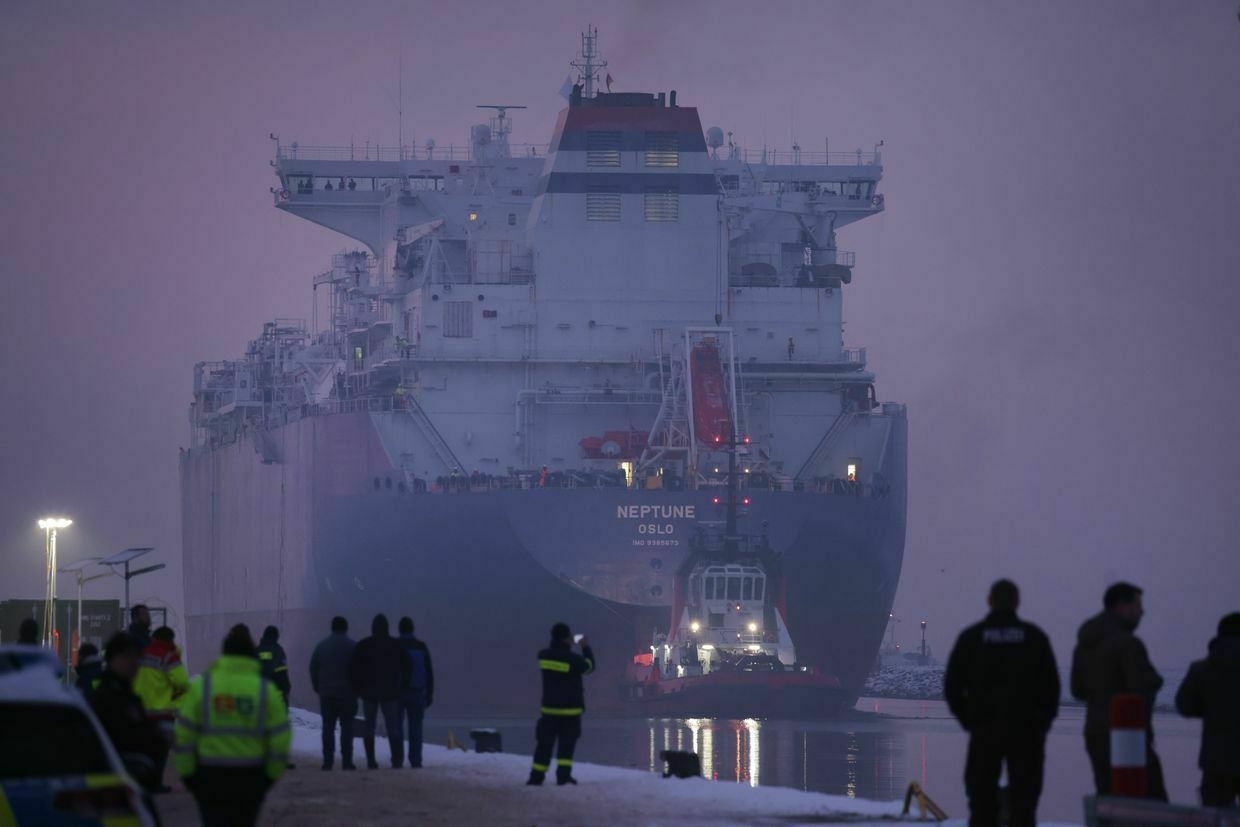
-
Not content with waging war inside Ukraine, Russia has now taken it into the virtual world
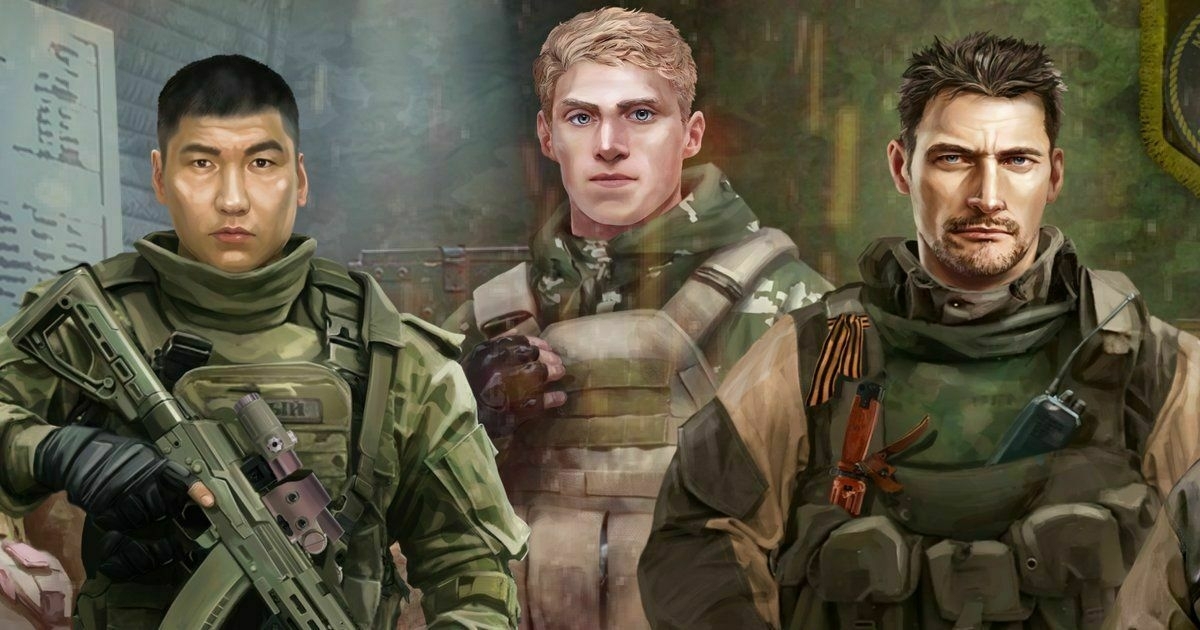
The beginning of the Donetsk and Luhansk oblasts' occupation in 2014, the battle for Mariupol in 2022, and the capture of Avdiivka in 2024 are no longer just episodes of Russian aggression against Ukraine. They are now missions in the new Russian video game Squad 22: ZOV.
Nearly a year after the Russian studio SPN announced in July 2024 that it had started working on the game in cooperation with Russia’s Defense Ministry, Squad 22: ZOV became available for free in Russian, English, and Chinese on Steam, an international distribution platform with over 30 million active users daily.
Before the game begins, players choose from characters from Ukraine’s partially Russian-occupied Donetsk Oblast, where Moscow launched its 2014 invasion under the false pretext of protecting Russian speakers from persecution, a baseless claim widely debunked as Kremlin propaganda.
In the game, the characters say they are seeking to “bring peace” to their homeland — but under the Russian flag. Their mission is to capture positions held by the Ukrainian Armed Forces and advance deeper into Ukrainian territory, repeating Kremlin narratives that portray Russia’s war as a response to “Kyiv’s terror,” another certifiably false claim.
The new game is not the first time Russia has used video games as a vehicle for propaganda aimed at young audiences. But it is the first to focus on Russia’s war in Ukraine, featuring real battles and characters based on actual individuals.
Almost immediately after it was published on Steam, the game was unavailable in Ukraine. As of June, it has received mixed reviews. But experts interviewed by the Kyiv Independent said that even if the game fails to attract a wide audience, it still poses a threat — and there is nothing to stop Russia from continuing to develop another, potentially more effective tool for spreading its propaganda.
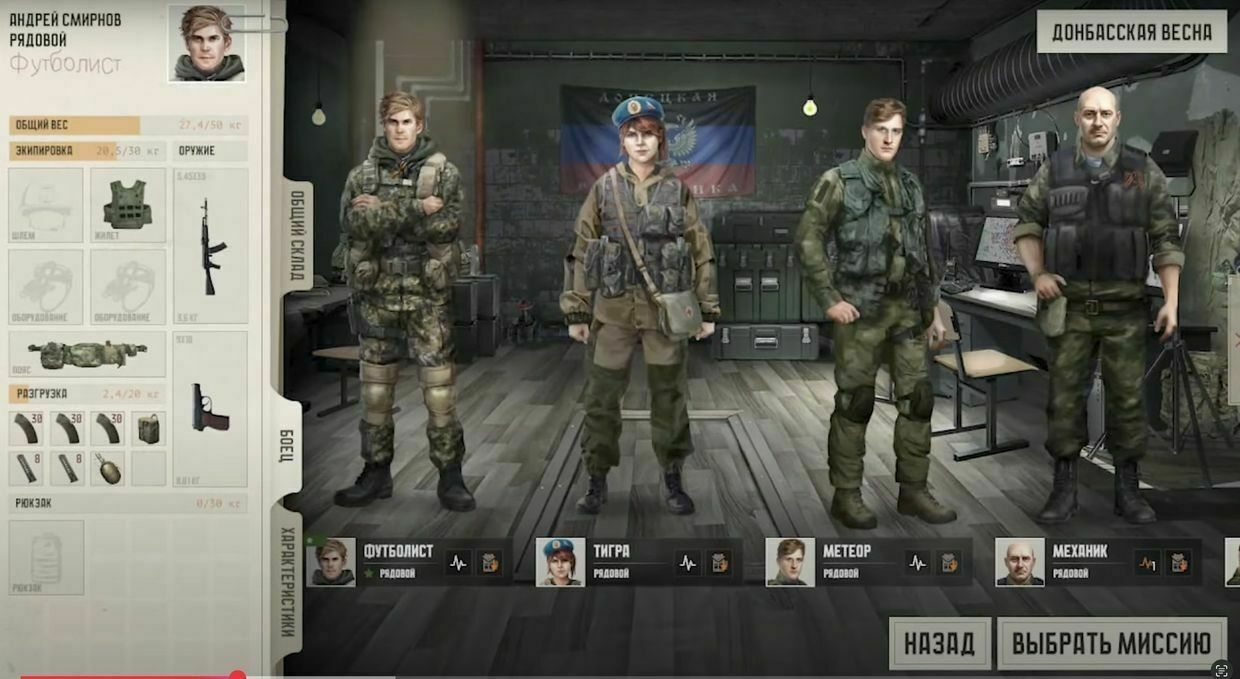
Character selection screen from Squad 22: ZOV - the game whitewashes Russian war crimes and promotes anti-Ukrainian narratives. (X) “Saying that Squad 22: ZOV promotes the genocide of Ukrainians, justifies the terrorism of the Russian army, and presents itself as ‘a savior from the Nazis’ is an understatement,” Mykhailo Hrabar, a Ukrainian gaming blogger with a nickname OLDboi, told the Kyiv Independent.
The first Russian tutorial on how to wage war in UkraineSquad 22: ZOV was produced by Russian national Alexander Tolkach, who held various positions, including in Ukraine, before working on the video game.
Tolkach was a diplomat in Europe, led external communications at DTEK, Ukraine’s largest private energy company, and worked for Hungarian video game developer Gaijin Entertainment, particularly on the War Thunder video game popular among soldiers as a military simulator.
In an interview with pro-Russian military blogger Kirill Fedorov, Tolkach said Russia’s Defense Ministry contacted him at the beginning of 2024 to develop a game as soon as possible “to demonstrate that we can.” Tolkach also said that Russian companies are usually reluctant to make games about the Russian war in Ukraine because of their dependence on international partners and the threat of sanctions.
“The Russians are trying to figure out how far they can go with their future, more expensive, technically superior games, with which they can attract the attention of Western players and pour anything into their ears.”
"We had to launch our own studio. The work continued, and we released the game in nine months (on the local market). It is not the perfect one, but we are not ashamed. And most importantly, we showed people: 'Look, nothing happened to us,'" Tolkach said on May 20 on Fedorov Live, referring to sanctions or bans from the international gaming community.
The game frequently refers to pro-Russian narratives that glorify the Russian army and justify Russian aggression, calling for the "liberation" of Russian-occupied Ukrainian territories fron Ukraine. The developers also said on the game’s website that they consulted with those who participated in Russia's war in Ukraine, including Vladislav Golovin, a career Russian military officer who took part in the siege of Mariupol in Donetsk Oblast in 2022.
According to the game's description on Steam, Squad 22: ZOV is recommended by the Russian army as a basic infantry tactical manual for cadets and members of Yunarmiya ("Youth Army"), the state-sponsored youth organization that combines ideological indoctrination with military training for children and teenagers.
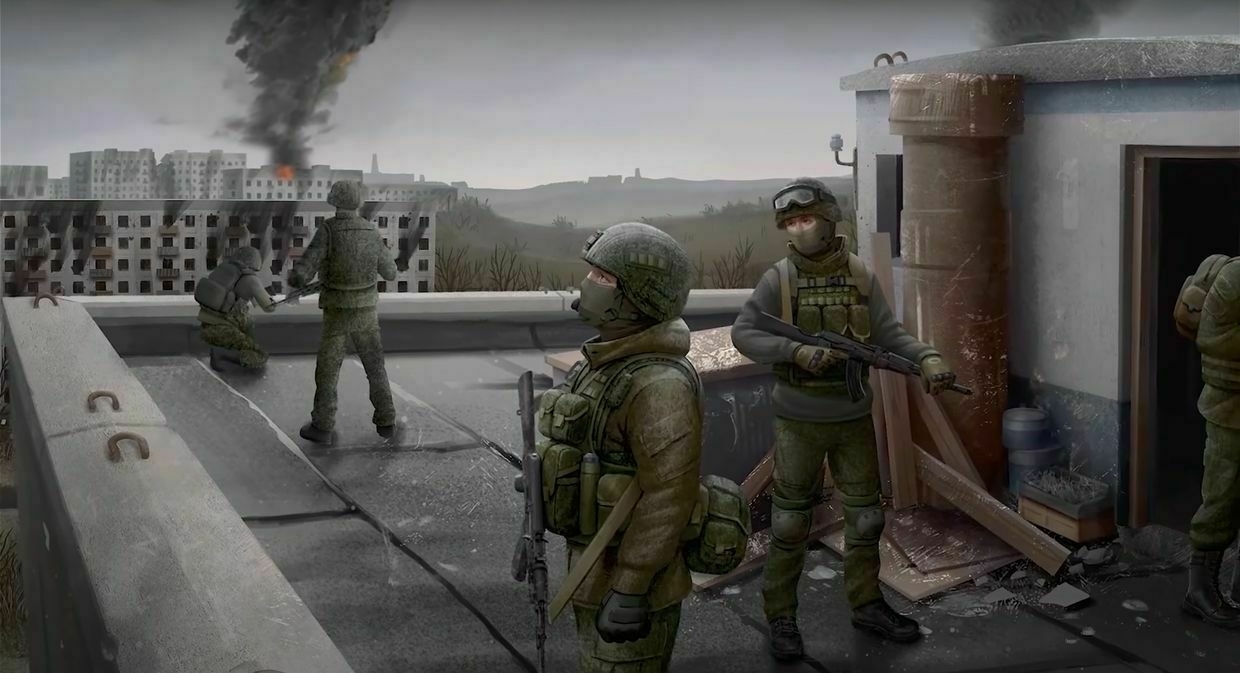
Artwork from Squad 22: ZOV depicts Russian troops overlooking a burning Ukrainian city. (X) Oleh Kulikov, an esports analyst, told the Kyiv Independent that the fact that a game is recommended at the state level may interest an average user even more than its content. According to the expert, Squad 22: ZOV is of low quality and will be difficult to affect a wide range of users worldwide.
"For the most part, propaganda video games are low-grade and unattractive, and this is where the Barbra Streisand effect comes in," Kulikov said, referring to a phenomenon where an attempt to hide something only brings more attention to it.
Oleksandr Petryk, a Ukrainian esports commentator with the nickname Petr1k, echoed Kulikov's stance, saying that Squad 22: ZOV has graphics of games released in the early 2000s, and is unlikely to attract young people in the way that the Ukrainian video game S.T.A.L.K.E.R. has. However, even if someone accidentally downloads the game abroad and sees the interpretation of events in Ukraine from a Russian perspective, it will play into Russia's hands, he added.
How to resist Russian propaganda in cyberspace?Squad 22: ZOV, made in a matter of months and openly funded by the Russian government, is unlikely to cause large-scale damage to Ukraine, but a better Russian product can, the experts interviewed by the Kyiv Independent said.
"The Russians are trying to figure out how far they can go with their future, more expensive, technically superior games, with which they can attract the attention of Western players and pour anything into their ears," game blogger Hrabar said, adding that Russia is already developing better projects, particularly about Russia's Wagner Group of mercenaries.
According to the experts, Steam, owned by the American Valve Corporation, has already been involved in scandals when controversial games were published on its platform that illegally collected user data or had a plot that contained sexual violence and were removed only after public outcry. The fact that Steam approved Squad 22: ZOV was no surprise.
"Steam has very weak moderation, which is partially performed not even by Valve employees, but by active community members," Hrabar said. "After the platform canceled the Greenlight system, which allowed the community to vote for games to be published, the pipe burst. Now you can get to the platform even with a piece of crap."
Esports analyst Kulikov added that to effectively counter Russian propaganda in video games, Ukraine must develop its own, thereby promoting the Ukrainian brand on the international market. At the same time, the Ukrainian government should respond to the launch of such propaganda projects as Squad 22: ZOV.
"Ukraine's Digital Transformation Ministry needs to reach out to companies like Valve Corporation, the very next day after the game is released or announced," Kulikov said.
"Even if it doesn't work, it will help to develop connections to establish operations and prevent something more serious from happening in the future. And it is bound to happen."
Author's note:
Hi, this is Kateryna, the author of the article. Thank you for reading. The war between Ukraine and Russia has long gone beyond the battlefield, and Russian propaganda is widely spread in the media, movies, and video games. The game Squad 22: ZOV is one of many examples of Russian propaganda tools, targeting one of the most vulnerable audiences, youth. If you want to see more articles like this, and support us in countering Russian propaganda, consider joining our community today.Russia just accidentally admitted to its staggering troop losses in UkraineA senior Russian official on June 19 inadvertently confirmed the staggering troop losses incurred by Moscow’s forces during its full-scale invasion of Ukraine. In an interview with CNN, Russian Ambassador to the U.K. Andrey Kelin was asked about Moscow’s maximalist intentions in Ukraine and its ability to recruit enoughThe Kyiv IndependentChris York
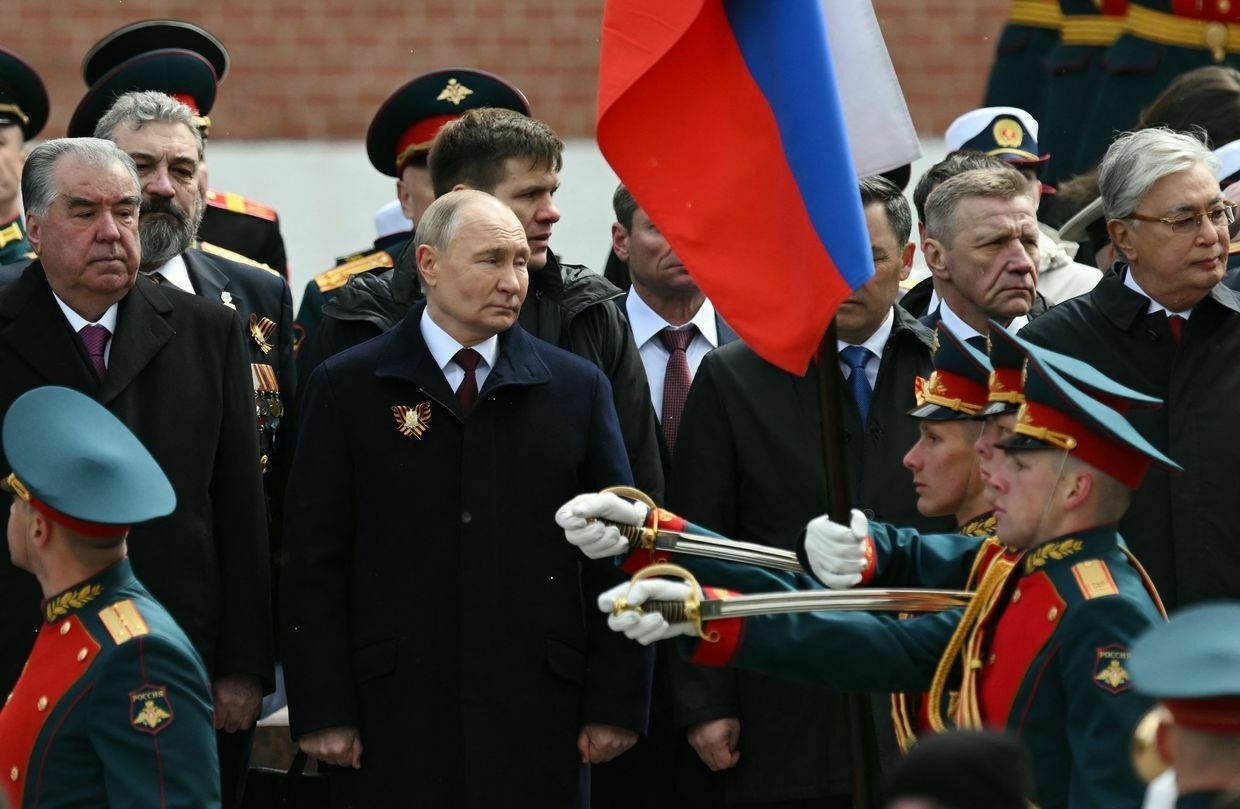
-
Peskov: Russia to continue its military operation in Ukraine
In the wake of negotiations in Istanbul, Russian Presidential Press Secretary Dmitry Peskov reiterated Russia's commitment to continuing its military campaign against Ukraine until its objectives are met. Peskov explained to Russian media that political-diplomatic avenues for resolving the conflict are currently unfeasible.
"Discussions regarding a Ukrainian settlement cannot take place in the public domain; they must occur in a 'mode of silence'," Peskov emphasized.
Notably, Ukrainian First Deputy Foreign Minister and Kyiv's negotiation delegate, Serhiy Kyslytsia, remarked that the recent meetings between Ukrainian and Russian delegations in Istanbul should not be classified as official negotiations. He highlighted that the conflict can only be resolved following a summit between Ukrainian President Volodymyr Zelensky and Russian President Vladimir Putin. Kyslytsya further expressed the impossibility of ending the war without direct talks between the heads of both states.
-
Ukraine imposes new sanctions on Russian, Chinese, Belarusian companies involved in drone production
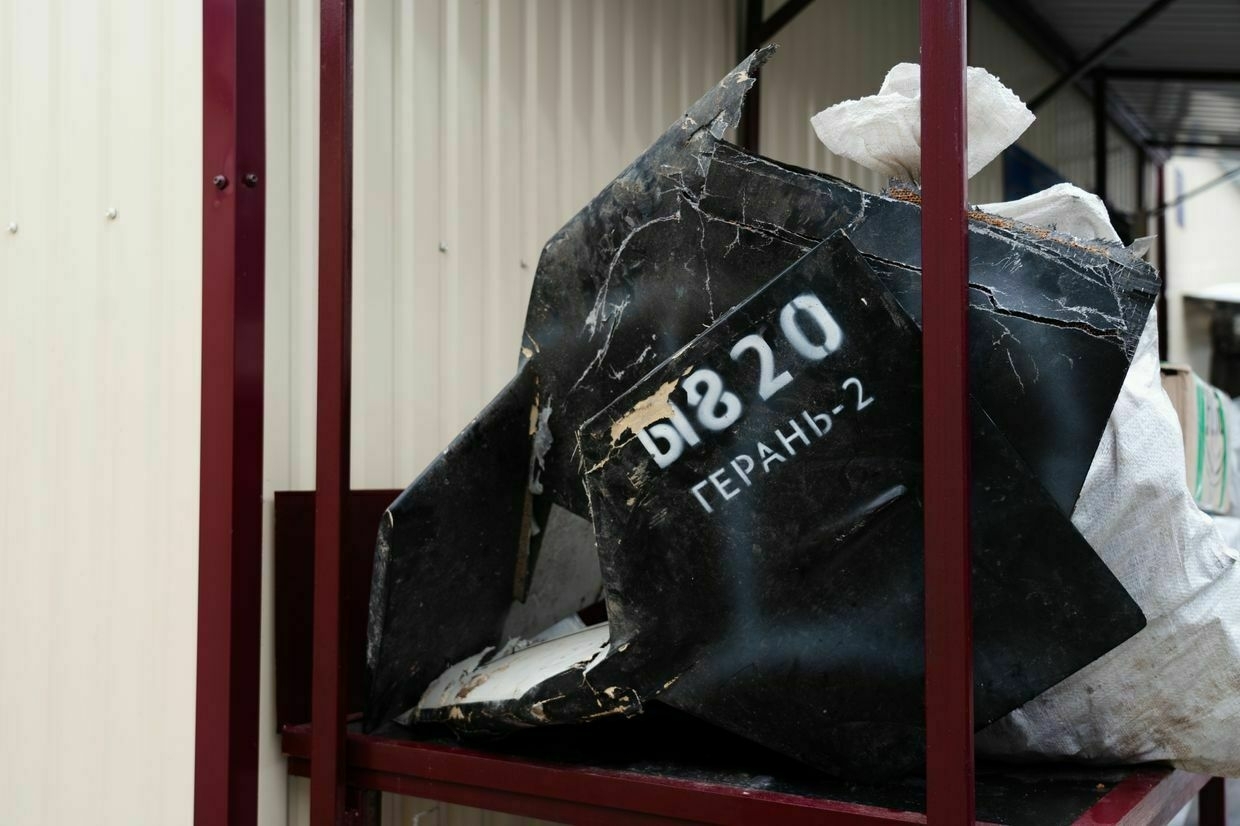
President Volodymyr Zelensky signed a decree on June 20, imposing sanctions on 56 individuals and 55 Russian, Chinese, and Belarusian companies involved in the production of Russian drones and sanctions circumvention.
Ukraine introduced new restrictions as Russia has escalated drone attacks against Ukrainian cities over the past weeks, launching record 400-500 unmanned aerial vehicles (UAVs) per night.
Individuals and legal entities subject to Ukrainian sanctions cannot do business and trade in Ukraine, cannot withdraw their capital from the country. In the meantime, their assets are blocked, as well as their access to public and defense procurement, and entry into the territory of Ukraine, among other restrictions.
The new package of sanctions targets individuals and entities involved in the development and production of Russian drones such as Geran, Orlan-10, SuperCam, and first-person-view (FPV) drones, according to a decree published on the Presidential Office’s website.
The Belarusian Precision Electromechanics Plant and six Chinese enterprises located in Hong Kong and in the provinces of Shandong and Shenzhen are among the sanctioned entities.
The sanctions list includes equipment suppliers to Alabuga Machinery, a Russian manufacturer of machine tools and gears, and individuals who import components for the sanctioned Kronshtadt JSC, a drone producer that developed Banderol UAVs with jet engines.
Russia has repeatedly targeted Ukrainian cities with waves of attack drones, often striking energy infrastructure and residential buildings overnight. Ukraine’s defense forces use a mix of electronic warfare, air defense systems, and drone-on-drone interception to repel the assaults.
Drones have become one of the defining tools of the full-scale war, used extensively by both Ukraine and Russia for surveillance, long-range strikes, and tactical battlefield advantage.
-
Ukraine returns heroes! A new stage of prisoner exchange #shorts
-
Russia pulls its scientists out of Iranian nuclear plant, as Israeli strikes threaten decades of collaboration
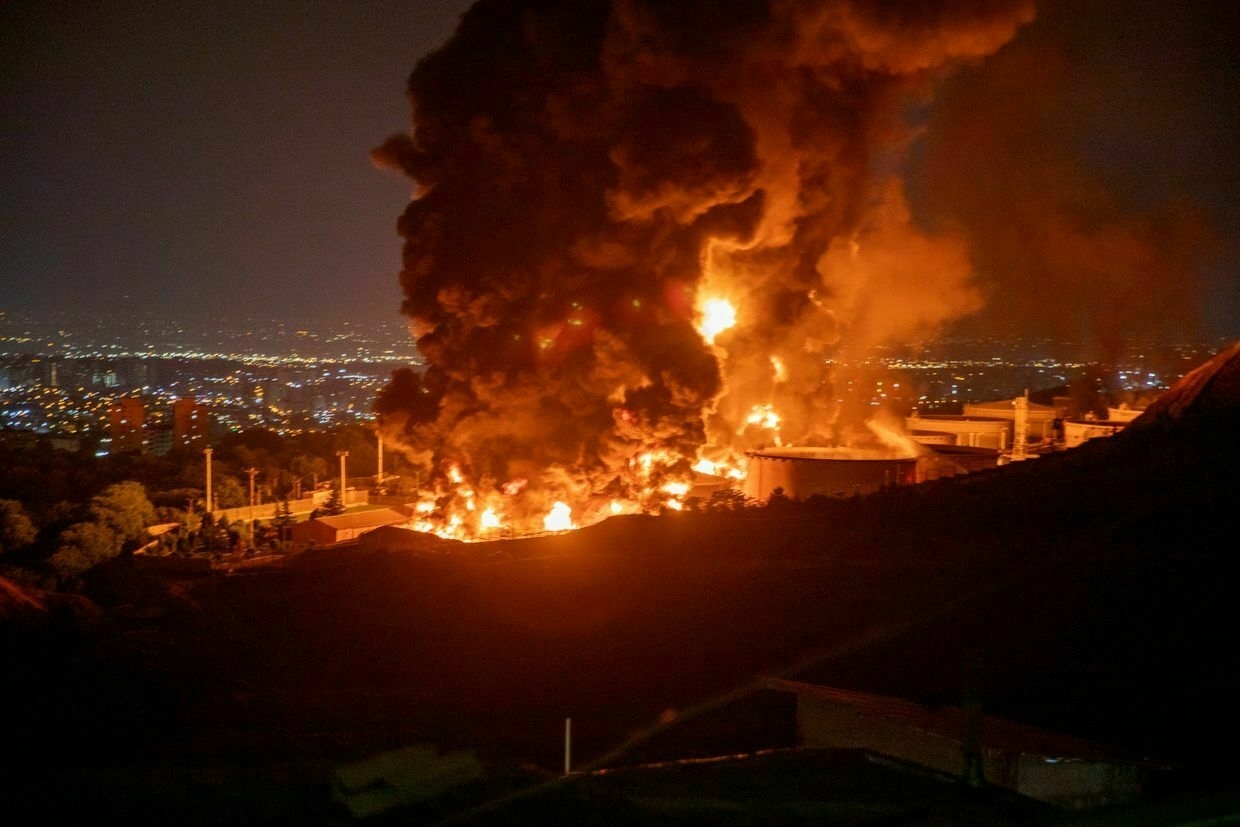
Israel’s strikes on Iranian nuclear facilities have alarmed none more than Russia, the country that first brought nuclear power to Iran in defiance of Western objections.
We’re “millimeters from catastrophe,” said Kremlin spokeswoman Maria Zakharova on June 18 in response to a bombing campaign that Israel launched against Iran on June 13.
Decades of conflict with the West have united Iran and Russia, despite a cultural gulf between the two nations that dwarfs the Caspian Sea that physically divides them.
Russia has spent the past decade backing Iran-aligned regimes and militia groups throughout the Middle East. Most famous is Bashar al-Assad, a longtime dictator in Syria, on whose behalf Russia began actively fighting against rebels back in 2015. Assad fell in December.
“We’re dealing with the domino effects of those changes,” Anna Borshchevskaya, a senior fellow at the Washington Institute focusing on Russia’s policy toward the Middle East, told the Kyiv Independent.
“In my view, the Russians were not just mere opportunists. They weren’t just hedging their bets. They weren’t just watching on the sidelines. They were actively fueling chaos across the Middle East."
“Of course, they’ve (Iran and Russia) had such extensive nuclear cooperation because it was Russia that built the Bushehr nuclear reactor in the first place.”
In addition to a broad sense of being at war with the West, nuclear energy is a rare concrete tie joining Russia and Iran, alongside the arms trade and a shared interest in dodging sanctions on fossil fuels. Strikes on Iranian nuclear facilities are, for Russia, personal.
"Of course, they've had such extensive nuclear cooperation because it was Russia that built the Bushehr nuclear reactor in the first place," said Borshchevskaya.
Opened in 2007 and providing power by 2010, Bushehr is to date the only functioning nuclear power plant in Iran. Originally a project by German company Siemens, construction was on hold for decades following the toppling of the Shah in 1979. Built and maintained by Russia, it was the first nuclear reactor in the Middle East.
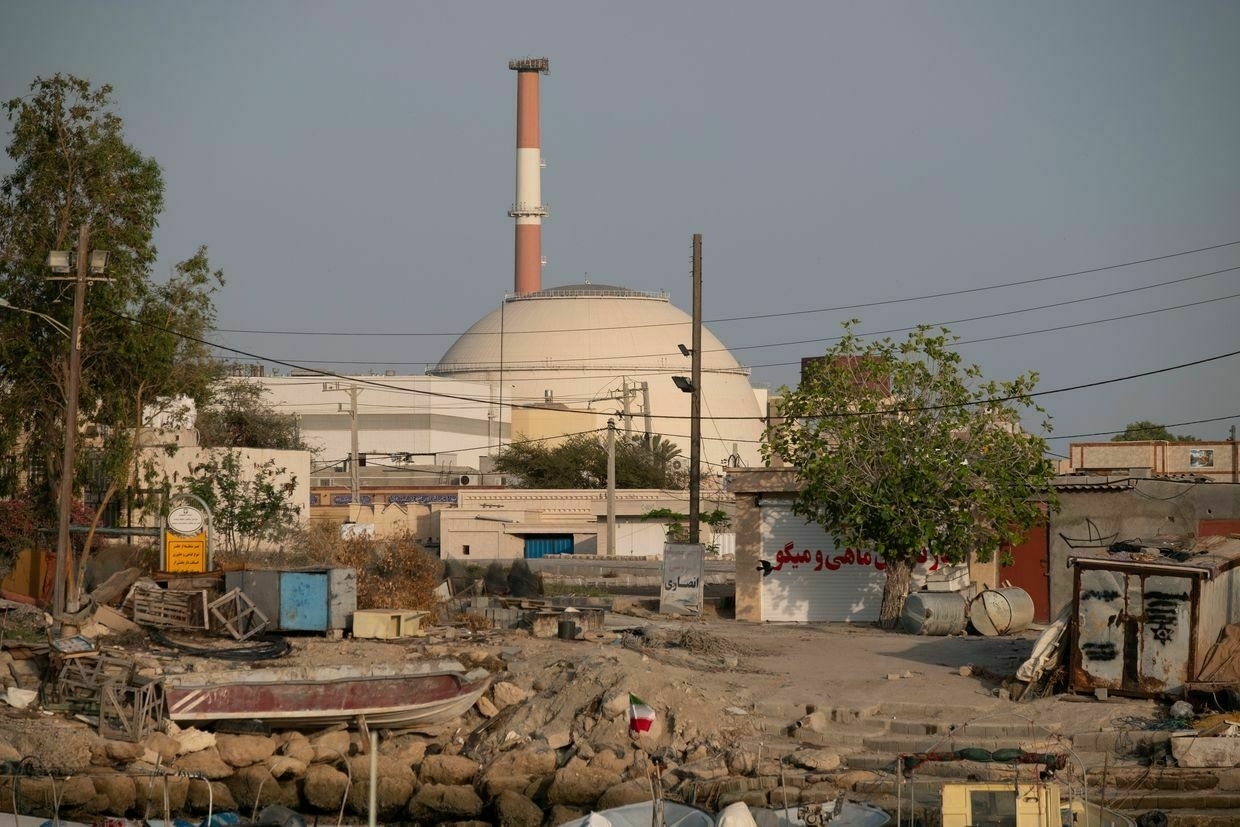
The Bushehr nuclear power plant is seen in a coastal village in Bushehr province, Iran, on April 29, 2024. (Morteza Nikoubazl / NurPhoto via Getty Images) 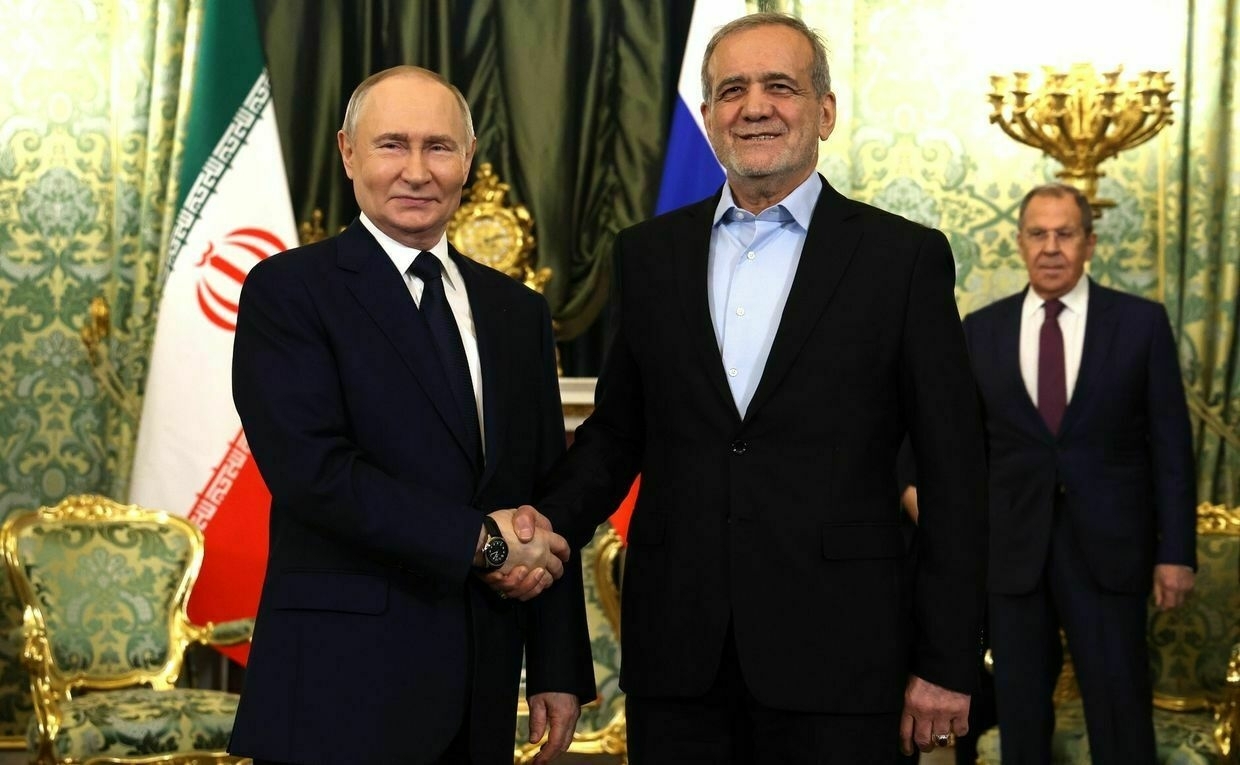
Russian President Vladimir Putin (L) meets with Iranian President Masoud Pezeshkian (R) on Jan. 17, 2025. (Kremlin Press Office / Handout / Anadolu via Getty Images) On June 19, Russian President Vladimir Putin announced that he had agreed with Israel as to the safety of the "over 200" specialists working at Bushehr on behalf of the Russian nuclear agency Rosatom.
The same day, Rosatom Head Aleksei Likhachov said at a conference in St. Petersburg that the agency had evacuated “tens” of their employees from Bushehr and were weighing a full evacuation, Russian news outlet Interfax reported.
Bushehr has yet to fall under Israeli strikes, at least in part because that would be a nuclear disaster.
The West stonewalled the Bushehr plant that Russia ultimately built out of concern that at least expertise, if not materials, would be redirected to Iranian nuclear weaponry. But Russia wanted a sale. Experts note that the uranium that Iran uses at its enrichment sites is separate from Bushehr, where Russia holds a monopoly.
But why Iran would pay Russia to build Bushehr and supply all of its uranium, as it does to this day, is an odd arrangement given that the oil and gas-rich Iran has little real need for nuclear energy.
"It is dubious to say that the reason why (Iran) did so is because they were absolutely desperate for having a nuclear power program. It is my belief that they did it to have a weapons program," Richard Nephew, a senior research scholar at Columbia University’s energy program and former U.S. President Joe Biden’s special envoy to Iran said to the Kyiv Independent.
John Erath, senior policy director for the Center for Arms Control and Non-Proliferation, echoed the sentiment.
“There was some question as to why they would build a nuclear power plant at great expense when they had no room for energy. I think the motives were pretty clear: Iran wanted experience with the technologies. They wanted to develop greater technical expertise and manage nuclear materials,” Erath told the Kyiv Independent. He maintained, however, that “Bushehr doesn’t have a role in the weapons program.”
Bushehr is the primary site of Russia’s nuclear engagement with Iran. But as a result of its ties as well as its position on the UN Security Council, Russia became a primary broker of the Barack Obama administration’s Joint Comprehensive Plan of Action, or JCPOA, colloquially the Iran nuclear deal.
The nuclear enrichment site that Israel is asking for U.S. aid in blowing up is Fordow, built under the mountains outside the city of Qom.
Nephew reminds that per the JCPOA, Russia was supposed to convert the Fordow plant from an enrichment facility to a “stable isotope separation plant.”
Experts interviewed by the Kyiv Independent all maintained that Russia was to all appearances a fair broker of the JCPOA in Iran. But it illustrates the resilience of Russia’s nuclear soft power and hard economics.
Kazakhstan is by far the largest source of uranium in the world. Russia, in turn, remains the largest seller of enriched uranium in the world, even as the European Union struggles to break free of energy dependence on Russian fossil fuels.
The equipment and even the fuel that goes into nuclear power plants are far less replaceable than oil and gas, providing an economic umbilical cord to Russia.
“Neither of them needs each other for the thing they primarily export, so it's all secondary stuff, and that secondary stuff is nuclear and arms,“ said Nephew.
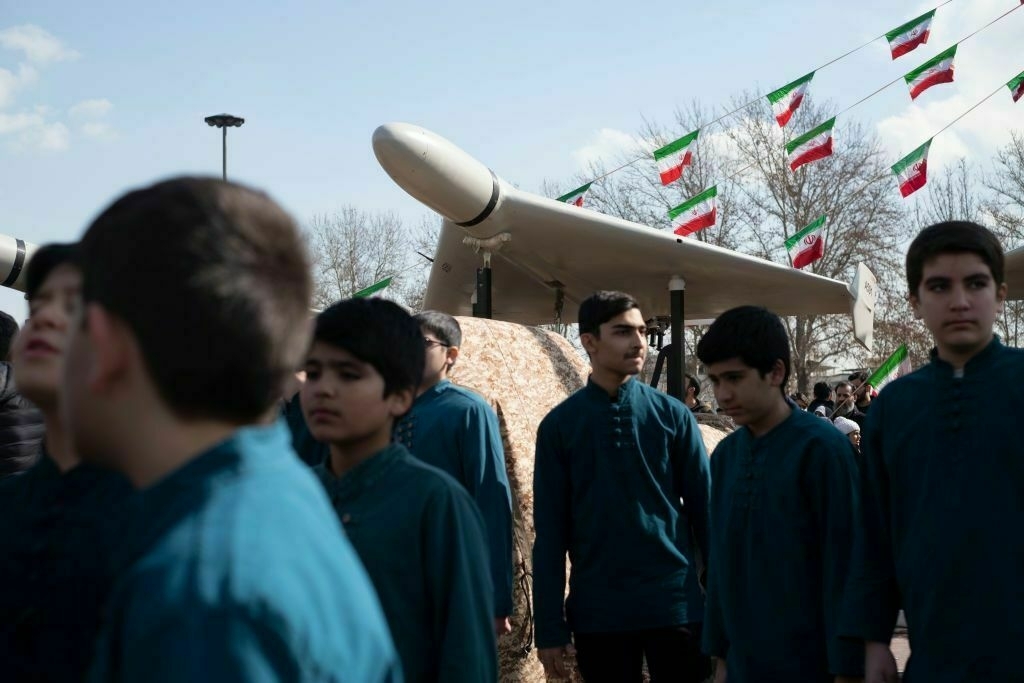
Iranian youth stand under an Iranian-made Shahed-136 unmanned aerial vehicle in Tehran, Iran, on Feb. 11, 2023. (Morteza Nikoubazl / NurPhoto / Getty Images) One infamous example is Iran’s Shahed drones, which Russia began importing and firing at Ukraine near the end of 2022. Russia has since made more and more of its own copy, the Geran.
For Russia, nuclear generation and the prestige of being one of the few nations that can build nuclear reactors have been a rare source of geopolitical soft power, including the JCPOA.
Even U.S. President Donald Trump recently floated the idea of Russian President Vladimir Putin functioning as a mediator between Iran and Israel, which he subsequently backtracked.
Rosatom, Russia’s nuclear agency, announced the construction of another nuclear plant in Iran in 2019. And on June 9 of this year, news broke that Iran’s nuclear agency had inked a contract with Rosatom for eight more reactors, including four at Bashehr. On June 13, Israel’s strikes began.
Even without Israel attacking, experts were doubtful that Russia would build these new plants. Their announcement was, rather, a "symbolic" gesture of support.
"They want to show cooperation with Russia," said Erath. "The nuclear power sector is something that's important to the Russian government. It's one of the areas that they export that has high value, that the Russians still are exporting, profiting from, when the rest of their economy is in big trouble."
Note from the author:
Hi, this is Kollen, the author of the article. Thank you for reading. The Kyiv Independent doesn’t have a wealthy owner or a paywall. Instead, we rely on readers like you to keep our journalism funded.
We’re now aiming to grow our community that has reached 20,000 paying members — if you liked this story, consider joining our community today.
There’s loads of video of Israeli air defenses, and none of Ukraine’s — this is whyAs Israel and Iran continue to trade salvos, dramatic footage of air defenses battling ballistic missiles have flooded the internet. Several prominent online commentators have compared the videos coming out of Israel with those from Ukraine, questioning why Russian attacks like those on Kyiv are portrayed in relatively sparse detail,The Kyiv IndependentYuliia Taradiuk
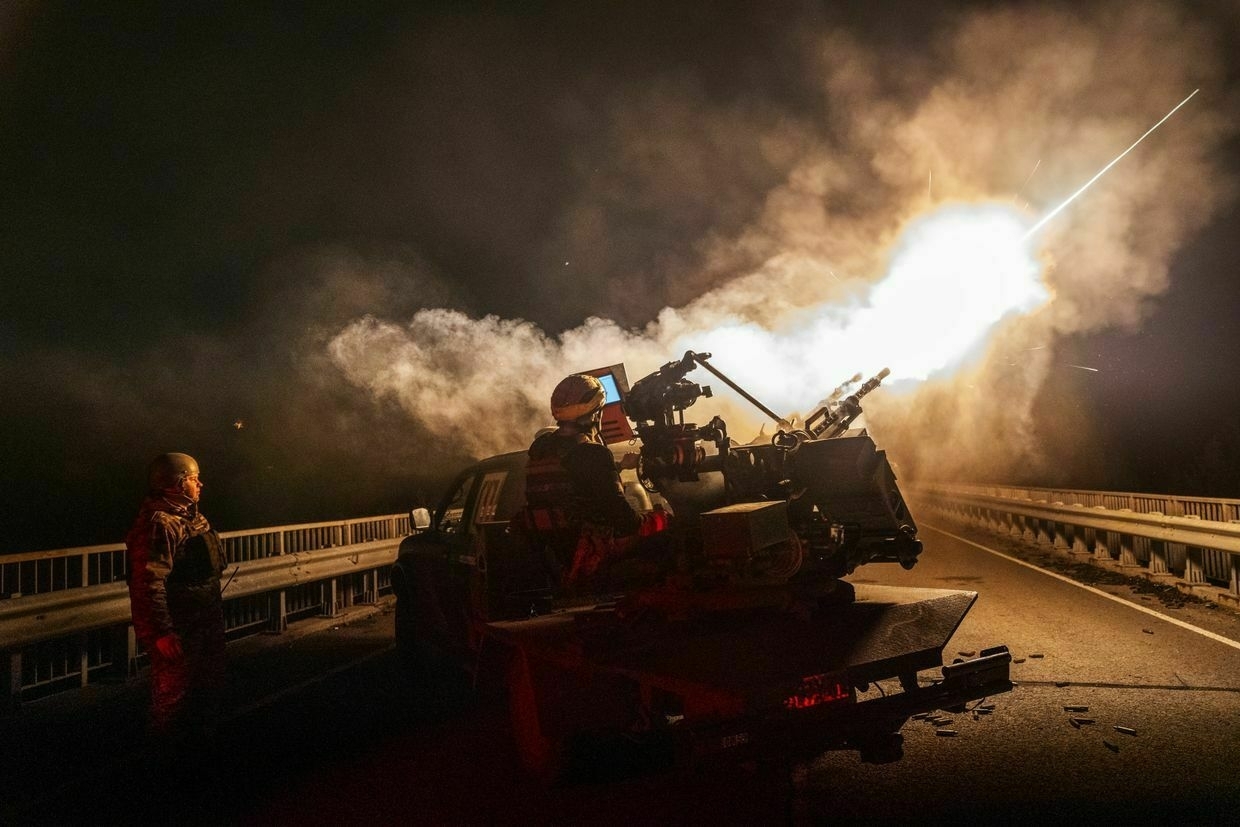
-
Russian cannibal soldier ate his own comrade, leaked audio from Ukrainian intel claims
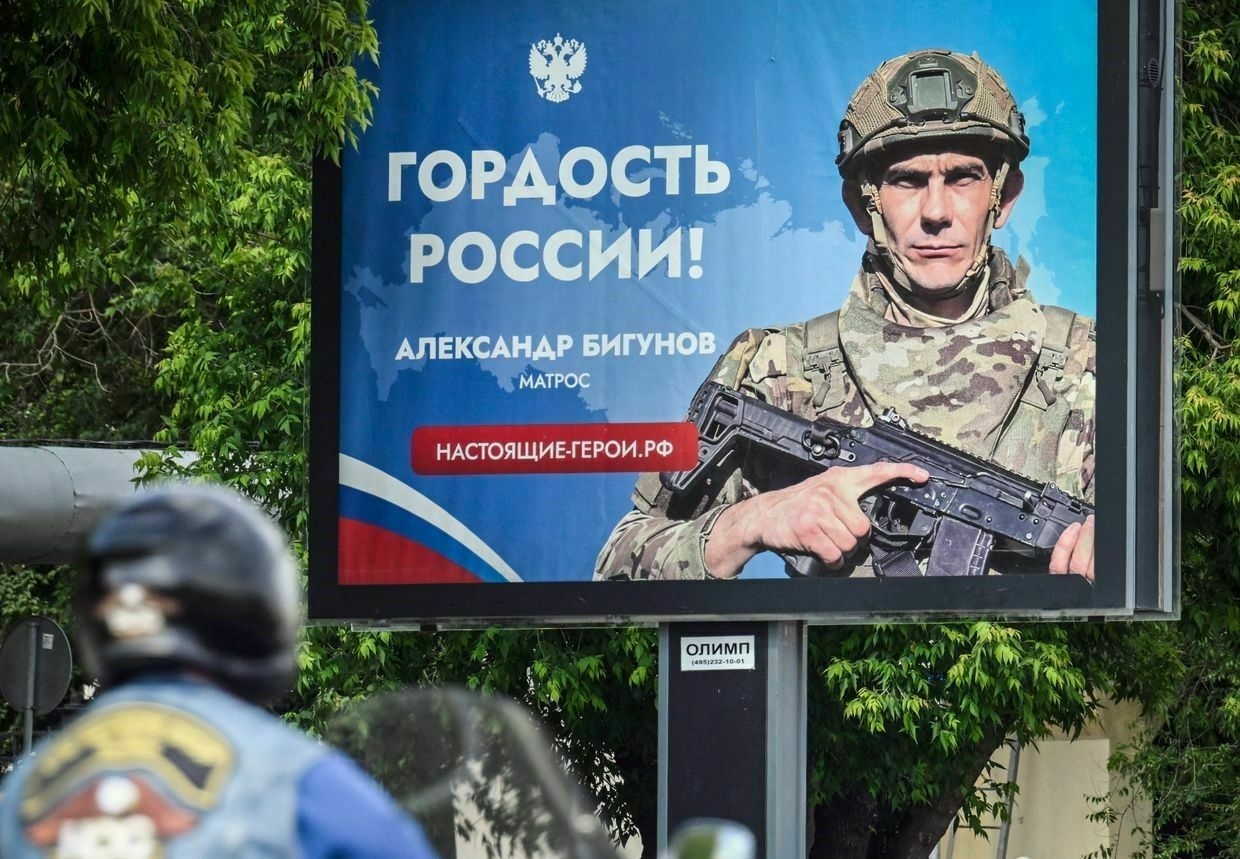
A Russian soldier deployed in Ukraine may have been involved in an act of cannibalism, audio intercepted by Ukraine’s military intelligence agency (HUR) and released on June 20 suggests.
In the recording posted by HUR on Telegram, a Russian commander is heard telling a subordinate that one soldier, referred to by the call sign “Brelok,” killed and consumed his fellow service member “Foma” over a two-week period.
Ukraine’s military intelligence described the alleged incident as further evidence of what it called the “moral and psychological collapse” of Russian forces.
“Nobody ran away. ‘Brelok’ took him out and then ate him for two fcking weeks,” a speaker identified by HUR as a commander of a reconnaissance unit from Russia’s 68th Motorized Rifle Division can be heard saying in the intercept.
According to HUR, both soldiers served in the 52nd Separate Reconnaissance Battalion, which is reportedly operating near the villages of Zapadne and Lyman Pershyi in the Kupiansk direction of Kharkiv Oblast.
The intercepted speaker adds that “Brelok” was later found dead himself.
“They say he was a 200 (military slang for a killed soldier), fck. Well, he ate his comrade, so that’s something to think about,” the voice says.
The Kyiv Independent cannot independently verify the authenticity of the leaked recording or confirm the events described in it. No visual or documentary evidence has been presented to support the claims, which are based solely on the intercepted audio provided by HUR.
But Russia’s recruitment system for the war in Ukraine has heavily relied on the country’s prisons as a source of manpower, leading to its ranks being filled by all manner of criminals, even cannibals.
Moscow has been recruiting convicts for its war since the summer of 2022, first under the auspices of the Wagner Group and later under the Russian Defense Ministry.
Initially, prisoners, even those convicted of violent crimes, were promised a pardon after completing a six-month military contract. Since January 2024, Russian army recruits drawn from prisons no longer receive pardons but are released on parole, and are expected to fight until the war is over.
In May 2024, the Moscow Times reported that Russian cannibal Dmitry Malyshev, who was sentenced to 25 years in prison for murder and several other serious crimes, joined one of Russia’s Storm V penal military units.
Malyshev was reportedly recruited to the army together with serial killer Aleksandr Maslennikov, sentenced to 23 years in prison for the “double murder and dismemberment of women."
Previously, Ukraine said there were cases of mistreatment and breakdown of discipline within Russia’s own ranks. A group of Russian soldiers fighting near Kursk Oblast surrendered to Ukrainian paratroopers in May, saying abuse within their own units was “worse than captivity,” according to a video posted by Ukraine’s Airborne Assault Forces.
The soldiers said they had been subjected to inhumane treatment, psychological pressure, and threats while still inside Russian territory.
Reporting by investigative outlets, the Insider and Foreign Policy, has documented systemic abuse of Russian troops throughout the full-scale invasion.
These include so-called “punishment squads,” beatings, confinement pits, and hazing that borrows heavily from Soviet-era gulag practices.
‘Unwanted by their homeland’ — Ukraine confirms Russia returned bodies of its soldiers disguised as Ukrainian“This is yet another proof of how Russia treats its people with contempt,” Interior Minister Ihor Klymenko said.The Kyiv IndependentTim Zadorozhnyy
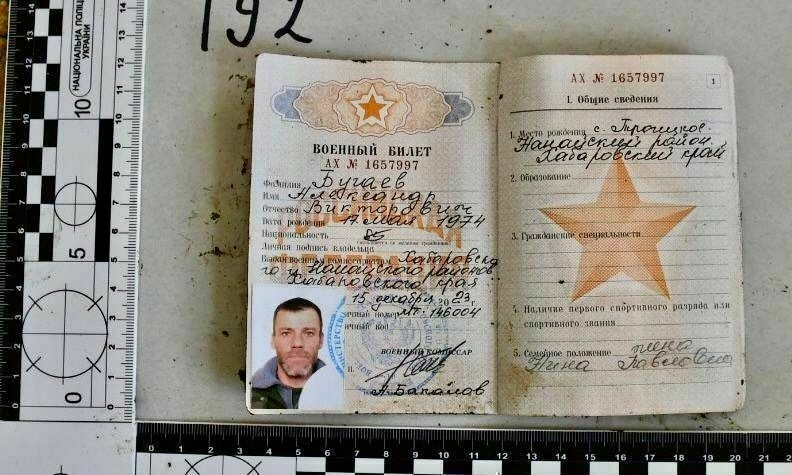
-
Russian drone strikes on Ukraine might drop due to Iran-Israel conflict, Estonian intel says
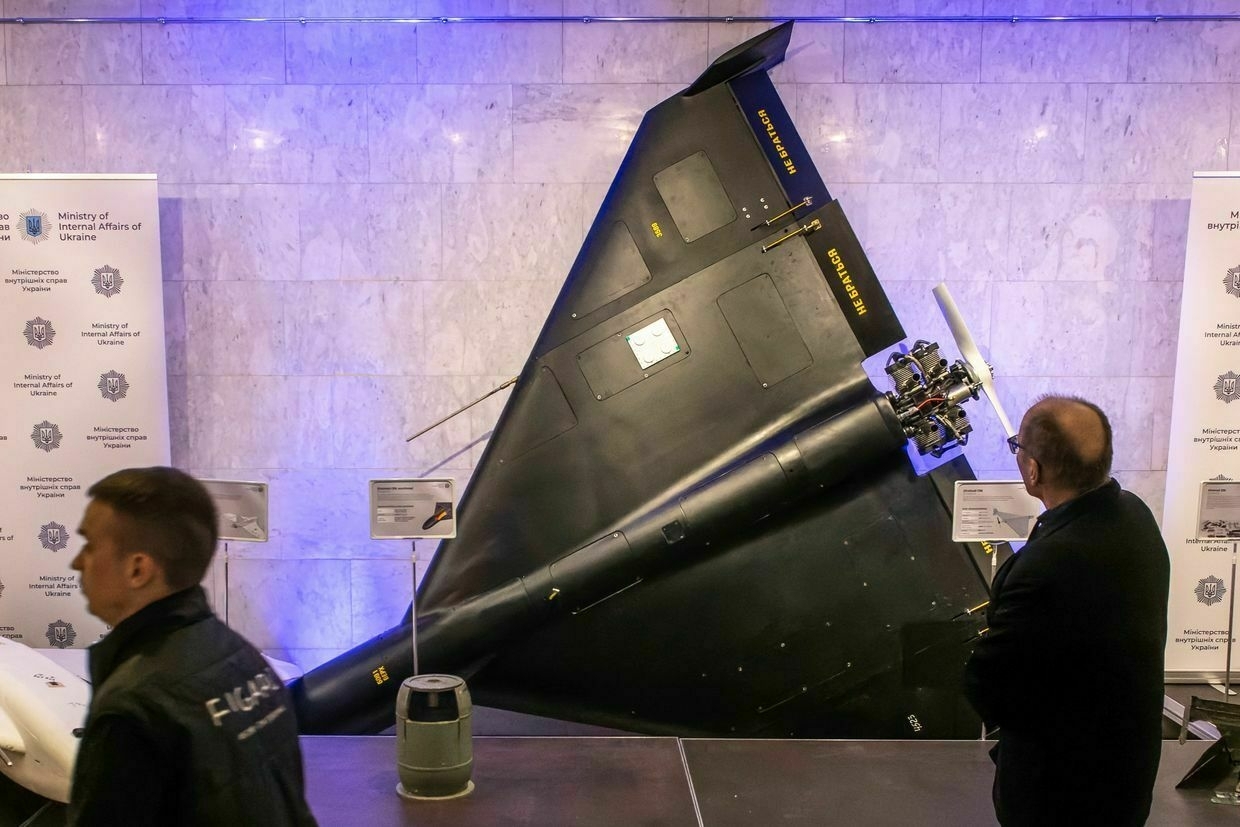
Russian drone attacks against Ukraine might decrease due to Iranian Shahed production capabilities being targeted in Israeli strikes, Estonian military intelligence commander Ants Kiviselg said on June 20, according to the ERR broadcaster.
The comments come as Russian drone strikes across Ukraine have been breaking records in recent weeks, with nearly 500 drones and missiles launched overnight on June 9.
“While it can be assessed that Russia has been able to largely localize and transfer the production of Shahed and Geran-type drones to Russia, it can be assumed that some critical nodes for drone production continue to come from Iran,” Kiviselg said.
Israel initiated a series of air strikes against Iranian military and nuclear facilities on June 13, with Tehran responding with waves of drone and missile attacks, further escalating tensions in the Middle East.
Iran has been a key ally to Moscow and provided the country with ballistic missiles and thousands of Shahed “kamikaze” drones for its war against Ukraine. Russia has also launched production of its own Shahed equivalents called Geran.
While Israeli strikes targeted and destroyed a Geran-type drone factory in Isfahan, Ukrainian forces have been attacking the Russian plant in Alabuga in Tatarstan, the Estonian intelligence chief noted.
“So there is a possibility that in the near future we may see a certain decline in the use of drones,” Kiviselg said. Estonian intelligence is nevertheless convinced that Moscow is planning steps to not only maintain, but also “increase” its drone production.
Russia has been regularly deploying Shahed-type drones for nighttime attacks on Ukrainian cities and infrastructure, overwhelming Ukrainian air defenses with massive swarms.
Ukraine’s intelligence has warned that the Russian defense industry seeks to ramp up the production of the strike drones, aiming to deliver 500 unmanned aircraft per month for Russia’s war effort.
In turn, the Ukrainian side has also increasingly invested in its drone capabilities, and more than doubled its production of long-range drones in 2024 compared to the previous year.
Russia just accidentally admitted to its staggering troop losses in UkraineA senior Russian official on June 19 inadvertently confirmed the staggering troop losses incurred by Moscow’s forces during its full-scale invasion of Ukraine. In an interview with CNN, Russian Ambassador to the U.K. Andrey Kelin was asked about Moscow’s maximalist intentions in Ukraine and its ability to recruit enoughThe Kyiv IndependentChris York
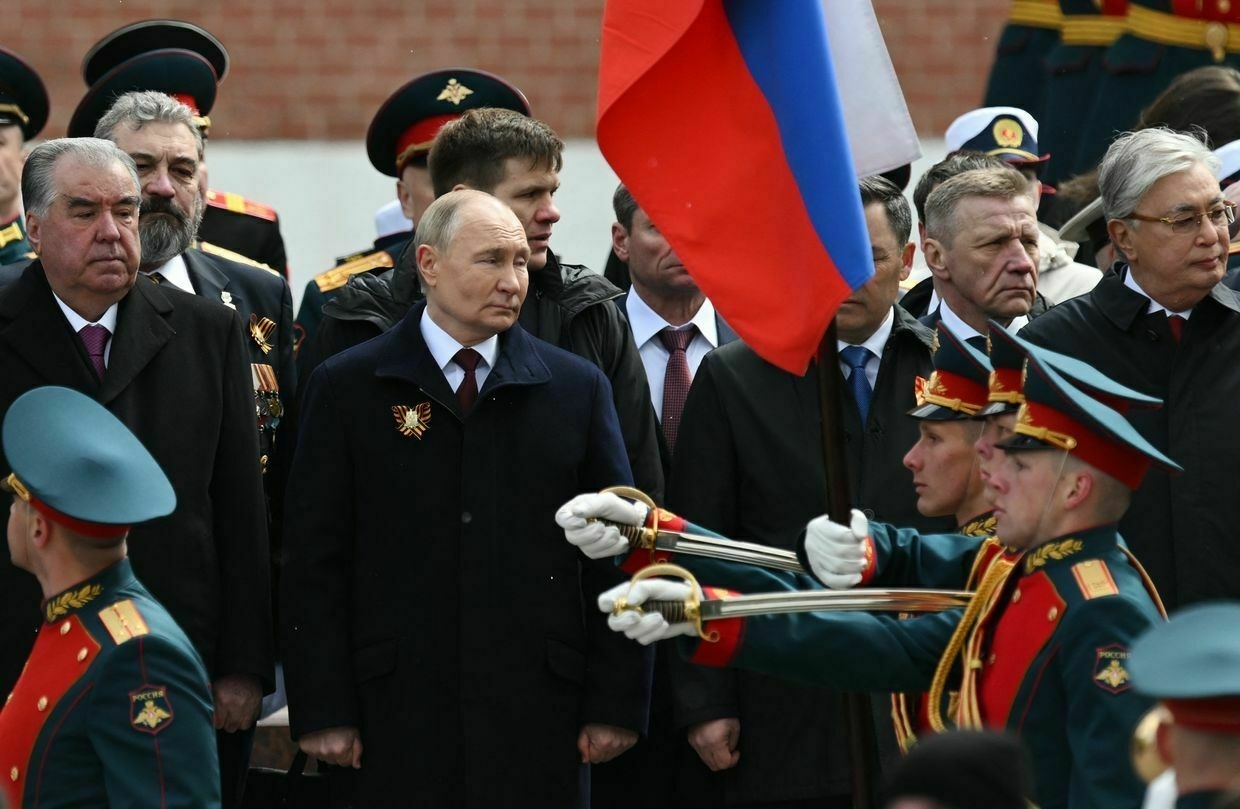
-
Ukraine, Russia carry out 2nd prisoner swap this week under Istanbul deal
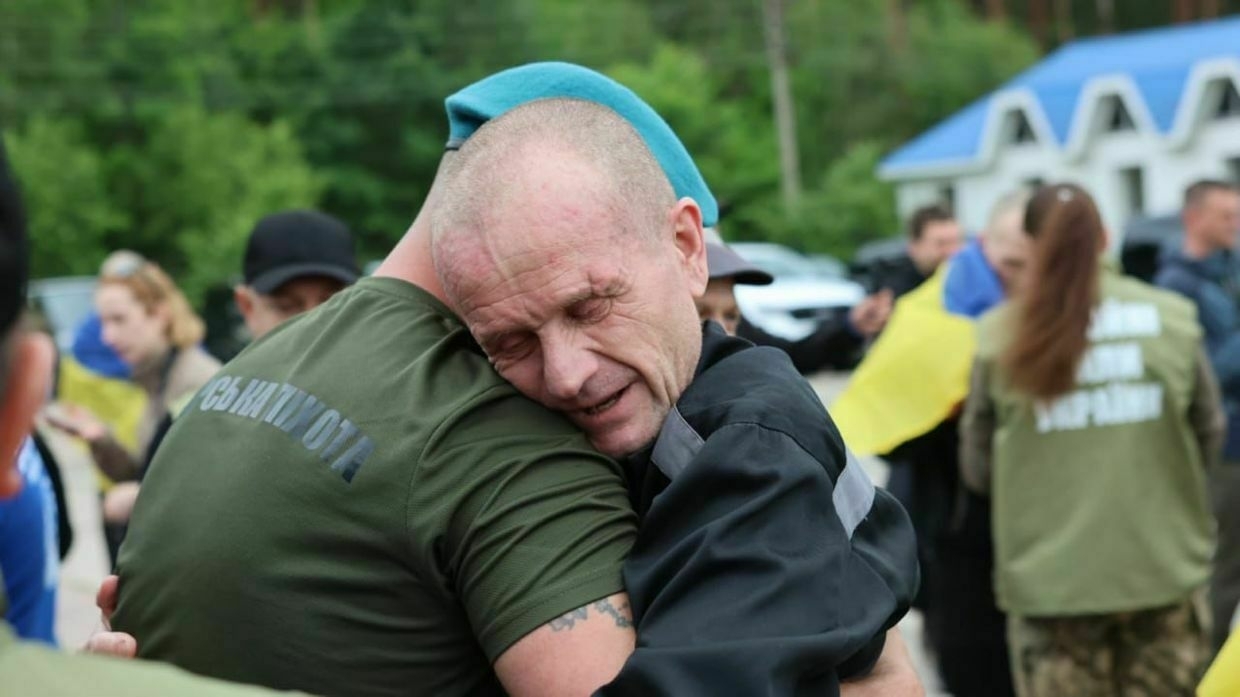
Editor’s note: The story is being updated.
Ukraine has brought home another group of prisoners of war released from Russian captivity, President Volodymyr Zelensky said on June 20, following another prisoner exchange a day earlier.
“Most of the warriors returning today from Russian captivity had been held for over two years. And now, at last, they are home,” Zelensky said on X, without revealing how many captives were exchanged.
Russia’s Defense Ministry also said that a group of Russian soldiers had been released by the Ukrainian side, without specifying the number of personnel involved.
This week’s exchanges follow four similar swaps carried out last week in accordance with Ukraine-Russia agreements reached at peace talks in Istanbul on June 2.
The latest swap was another in a series focusing on seriously ill and wounded prisoners, Ukraine’s Coordination Headquarters for the Treatment of the Prisoners of War (POW) said.
“These are defenders of Mariupol, Donetsk, Luhansk, Zaporizhzhia, Kherson, Kharkiv, and Chernihiv regions. Warriors of the Armed Forces, the National Guard, and the Border Guard Service,” Zelensky said.
The released POWs included privates and non-commissioned officers, some of whom were captured after the siege of Mariupol in 2022, according to the Coordination Headquarters. The oldest one is 60 years old, said Ombudsman Dmytro Lubinets.
While no political breakthrough was achieved at the Istanbul negotiations, both sides agreed to a phased exchange of prisoners and the repatriation of fallen soldiers' bodies. As part of that agreement, Russia pledged to return the bodies of up to 6,000 Ukrainian service members and citizens.
Moscow has handed over 6,057 bodies to Ukraine in several stages over the past few days, though Kyiv later said that these remains also included fallen Russian soldiers.
The June 2 agreements came after the largest known POW swap in late May, when 1,000 prisoners were exchanged on each side.
Ukraine repeatedly called for a prisoner exchange in an all-for-all format, but Russia continues to reject the offer.
‘Unwanted by their homeland’ — Ukraine confirms Russia returned bodies of its soldiers disguised as Ukrainian“This is yet another proof of how Russia treats its people with contempt,” Interior Minister Ihor Klymenko said.The Kyiv IndependentTim Zadorozhnyy
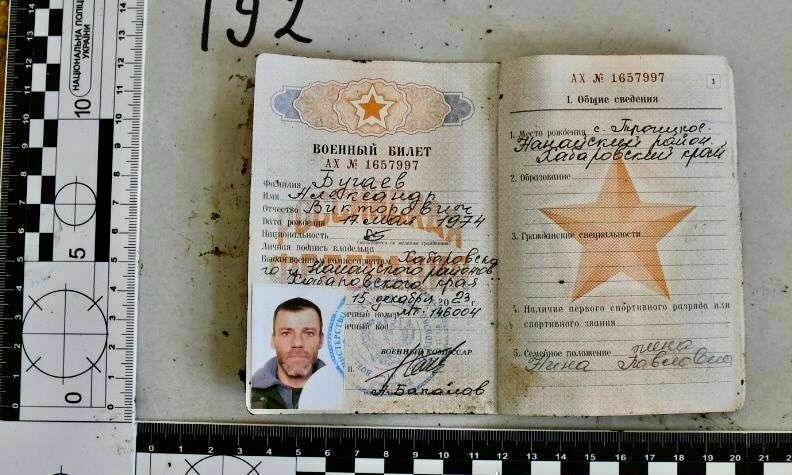
-
Russian political party requests political asylum for Musk, senior MP claims
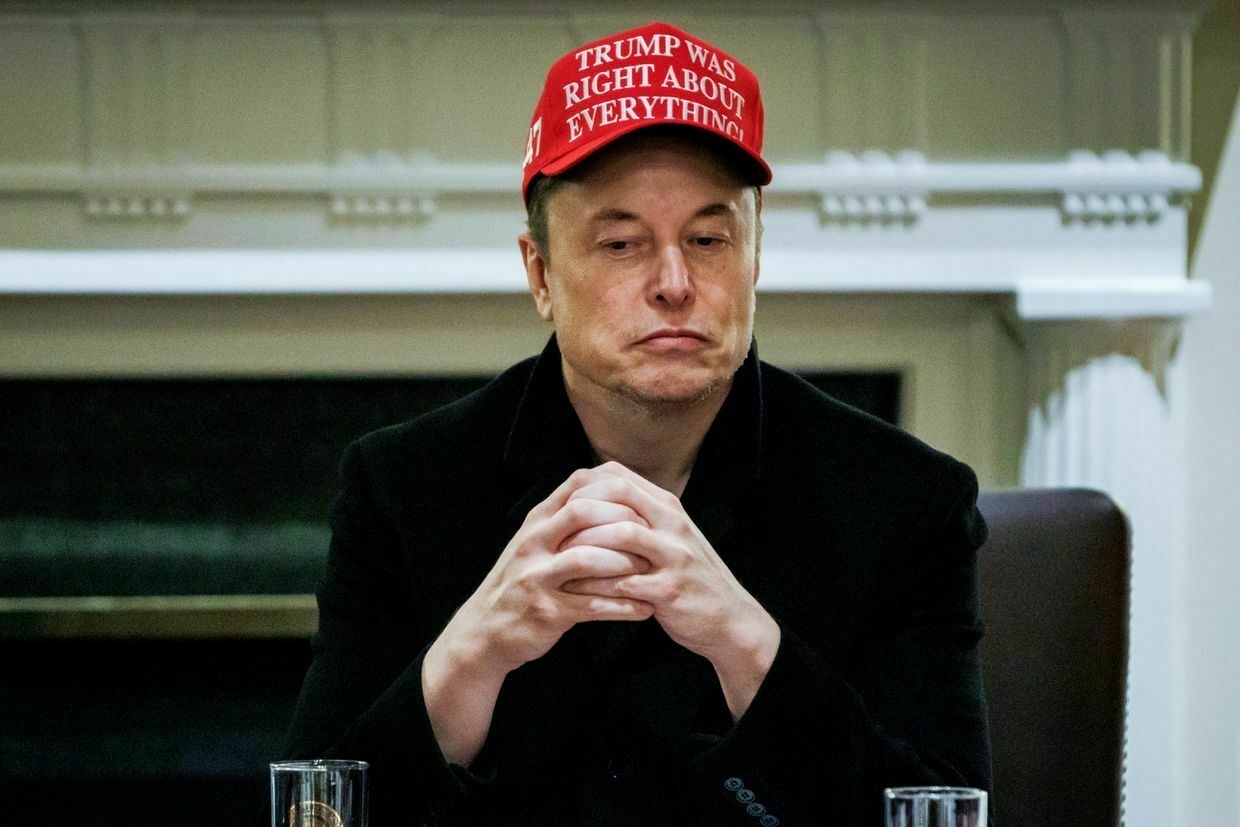
Russian authorities are considering a request from the New People’s Party to offer political asylum to U.S. tech billionaire Elon Musk, claimed the party’s lawmaker, Vladislav Davankov, to the Russian media on June 20.
Davankov, deputy speaker of the State Duma, told reporters at the St. Petersburg International Economic Forum that his party had formally petitioned the Russian Foreign Ministry to provide Musk with asylum. The request is expected to be reviewed within a month, he reportedly said.
“I think Elon Musk has made mistakes, but those mistakes should be forgiven,” Davankov said. “If things don’t work out for him, we are always ready to welcome him — from a technological and visionary point of view, he’s very impressive."
The claim could not be independently verified, and there has been no official confirmation from the Russian Foreign Ministry or Musk. Kremlin spokesperson Dmitry Peskov declined to comment, telling reporters, “Let’s wait for a statement from the Foreign Ministry or from Musk himself before we say anything."
The alleged request follows a public conflict that erupted between Musk and U.S. President Donald Trump earlier this month. The billionaire later expressed regret over a series of critical posts aimed at Trump, calling a proposed government spending bill “disgusting” and warning of economic consequences.
Trump hit back during a meeting with German Chancellor Friedrich Merz on June 5, saying on Truth Social that Musk had “just gone crazy."
In response, Musk claimed on social media that Trump owed him his electoral victory, suggesting his influence prevented Democrats from retaining the House.
Earlier this month, Dmitry Novikov, deputy chair of the State Duma Committee on International Affairs, told state-run news agency TASS that Russia would be ready to provide Musk with political asylum if needed.
“I think Musk is playing a completely different game, that he won’t need political asylum, although if he did, Russia could certainly provide it,” Novikov said on June 6.
The feud has attracted attention in Russia, where Musk is increasingly viewed as a sympathetic figure. Dmitry Medvedev, deputy chairman of Russia’s Security Council, joked on X that Moscow could broker peace between “D and E,” referring to Donald and Elon, in exchange for Starlink shares. “Don’t fight, guys,” Medvedev wrote.
Musk led a federal commission on government efficiency until May 30 and has been a key figure in dismantling U.S. foreign aid institutions, including USAID, which has delivered billions in aid to Ukraine.
Though he initially supported Ukraine by providing Starlink satellite systems to aid its defense, Musk eventually adopted Russian talking points, claiming President Volodymyr Zelensky lacks popular support and accusing Kyiv of running a “never-ending draft meat grinder."
He has also spoken out against U.S. military aid to Ukraine, a stance that aligns closely with Kremlin messaging aimed at discouraging Western support for Kyiv.
Russia’s war-fueled economy is running on empty, Central Bank chief warns“We grew for two years at a fairly high pace because free resources were activated,” Russia’s Central Bank Governor Elvira Nabiullina said.The Kyiv IndependentAnna Fratsyvir
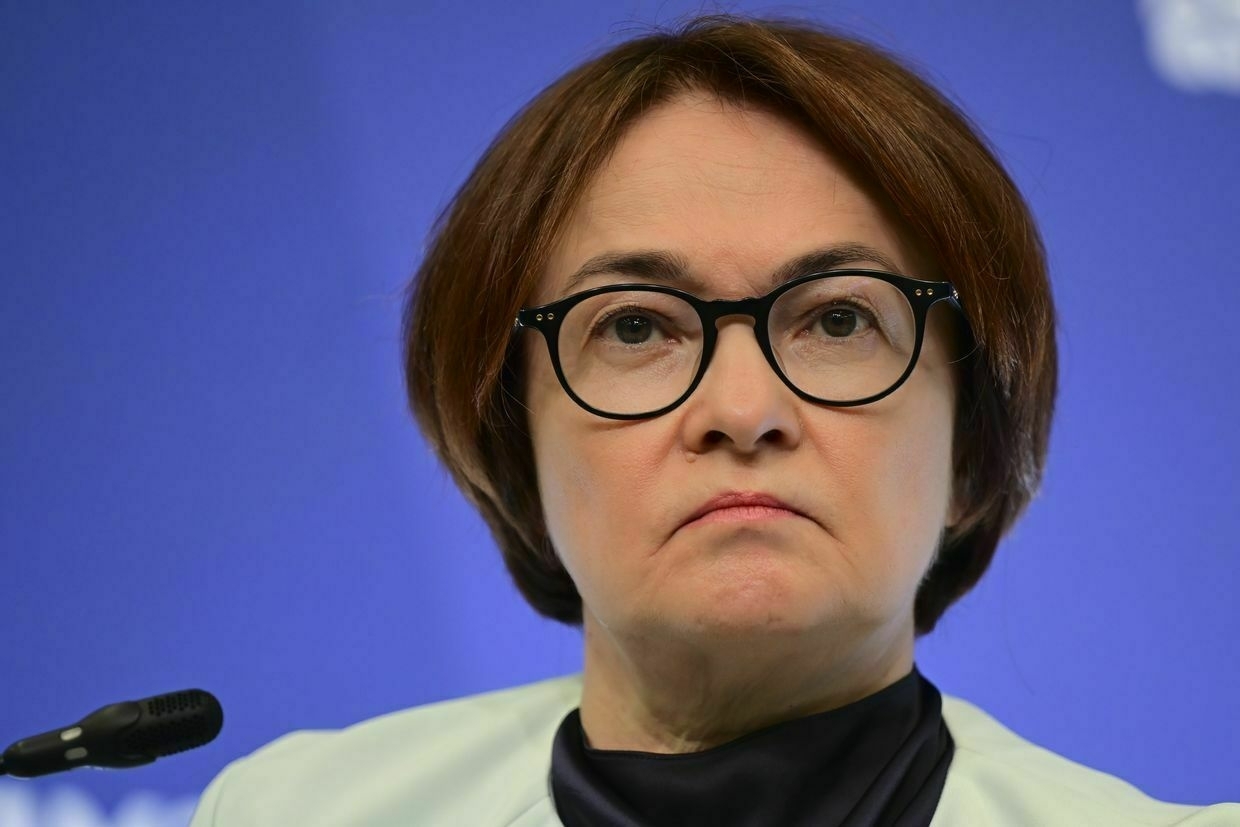
-
Shmyhal confirms Deputy PM's official travel abroad as questions mount amid corruption probe
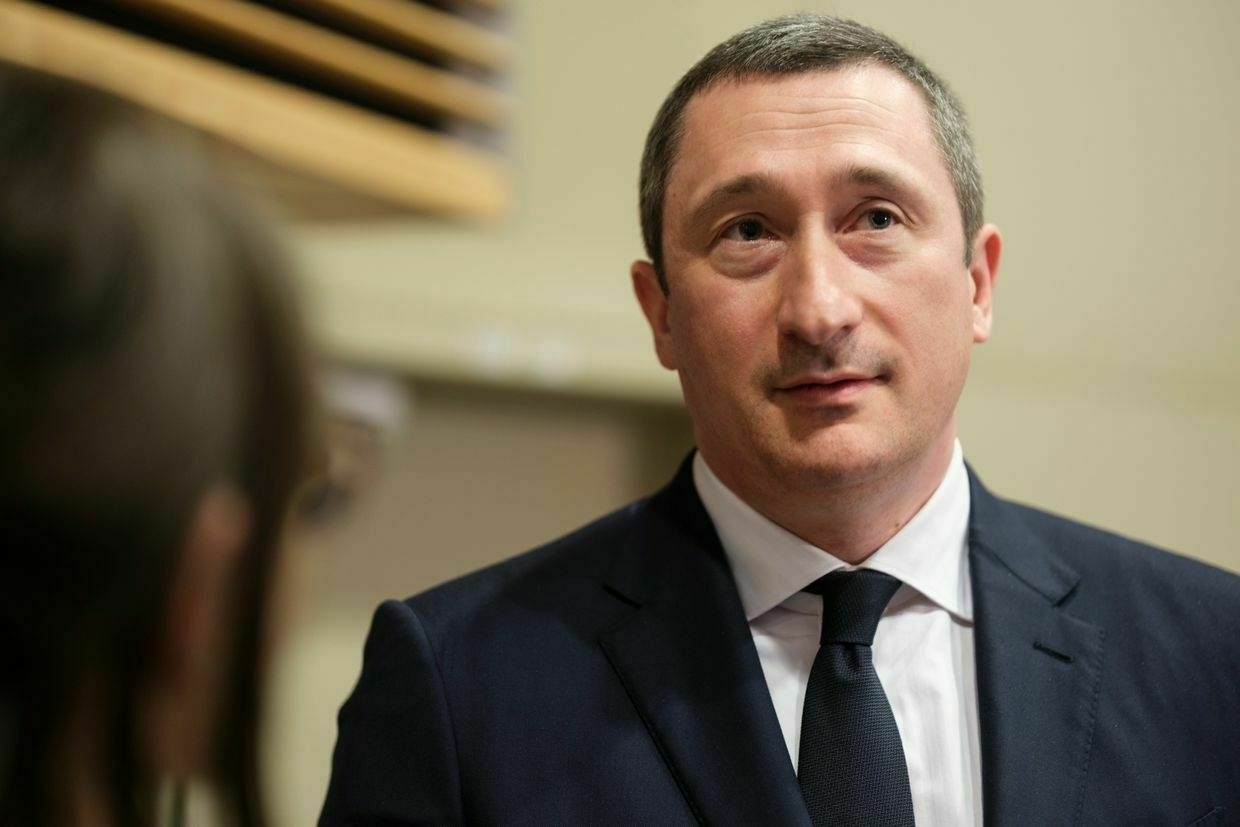
Deputy Prime Minister Oleksii Chernyshov’s official trip abroad has been approved until the end of the week, Prime Minister Denys Shmyhal said on June 20 amid media speculations connecting Chernyshov’s absence to an ongoing corruption investigation.
Shmyhal made the comment in response to opposition lawmaker Iryna Herashchenko in parliament.
Suspicions about Chernyshov, who heads the new National Unity Ministry focused on relations with refugees and the Ukrainian diaspora, arose earlier this week when the deputy prime minister did not attend a Kyiv forum he himself organized in person but joined online from abroad.
The deputy prime minister’s unexpected work trip to Vienna, announced on June 16, came three days after law enforcement agencies unveiled a corruption scheme involving two officials from the now-dissolved Communities and Territories Development Ministry, which was headed by Chernyshov.
According to Ukrainska Pravda, Chernyshov and two of his associates came under investigation last year over suspicions that they received kickbacks from the head of the KSM Group for illicitly transferring a plot of land for real estate development between 2021 and 2022.
Four sources in anti-corruption agencies told Ukrainska Pravda that despite the investigation, no police searches were conducted at the time, as they were blocked by the head of the National Anti-Corruption Bureau, Semen Kryvonos, who has a long-standing relationship with Chernyshov.
After the dissolution of the Communities and Territories Development Ministry at the end of 2022, Chernyshov was appointed the head of the state-owned energy company Naftogaz. In 2024, the official was tasked with leading the new National Unity Ministry — a position that often involved travel abroad — while also being named deputy prime minister.
The other two people connected to the case — Maksym Horbatiuk and Vasyl Volodin — were reportedly detained last week as the investigation began moving forward.
Chernyshov traveled to Prague on June 10 and 11 for a business trip, and then to Vienna a week later. The subsequent court hearings with the two detainees detailed Chernyshov’s role in the corruption scheme, according to Ukrainska Pravda.
The news outlet stressed that there is currently no evidence that Chernyshov’s current stay abroad is connected to the investigation. The National Unity Ministry said that foreign trips are a regular part of Chernyshov’s work.
The Kyiv Independent could not verify all the claims and has reached out to Chernyshov’s team for comment.
The case would mark the first corruption case against an official at the level of a deputy prime minister.
Trump’s peace push falters in both Ukraine and the Middle East — for similar reasonsU.S. President Donald Trump addressed a wide range of subjects during his inauguration speech. When speaking about international relations, he was adamant — “Our power will stop all wars and bring a new spirit of unity,” he said, talking about Russia’s war against Ukraine and the fighting in the MiddleThe Kyiv IndependentOleg Sukhov
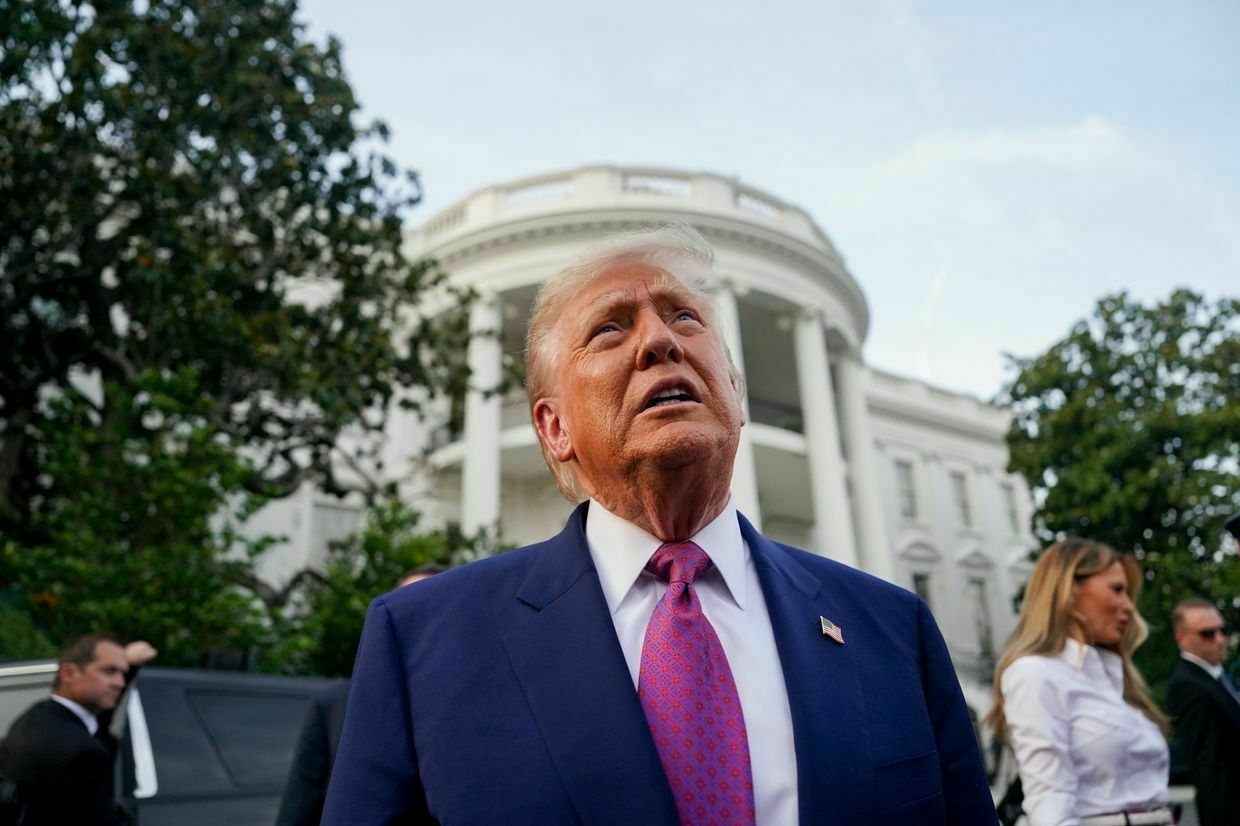
-
Russia's war-fueled economy is running on empty, Central Bank chief warns
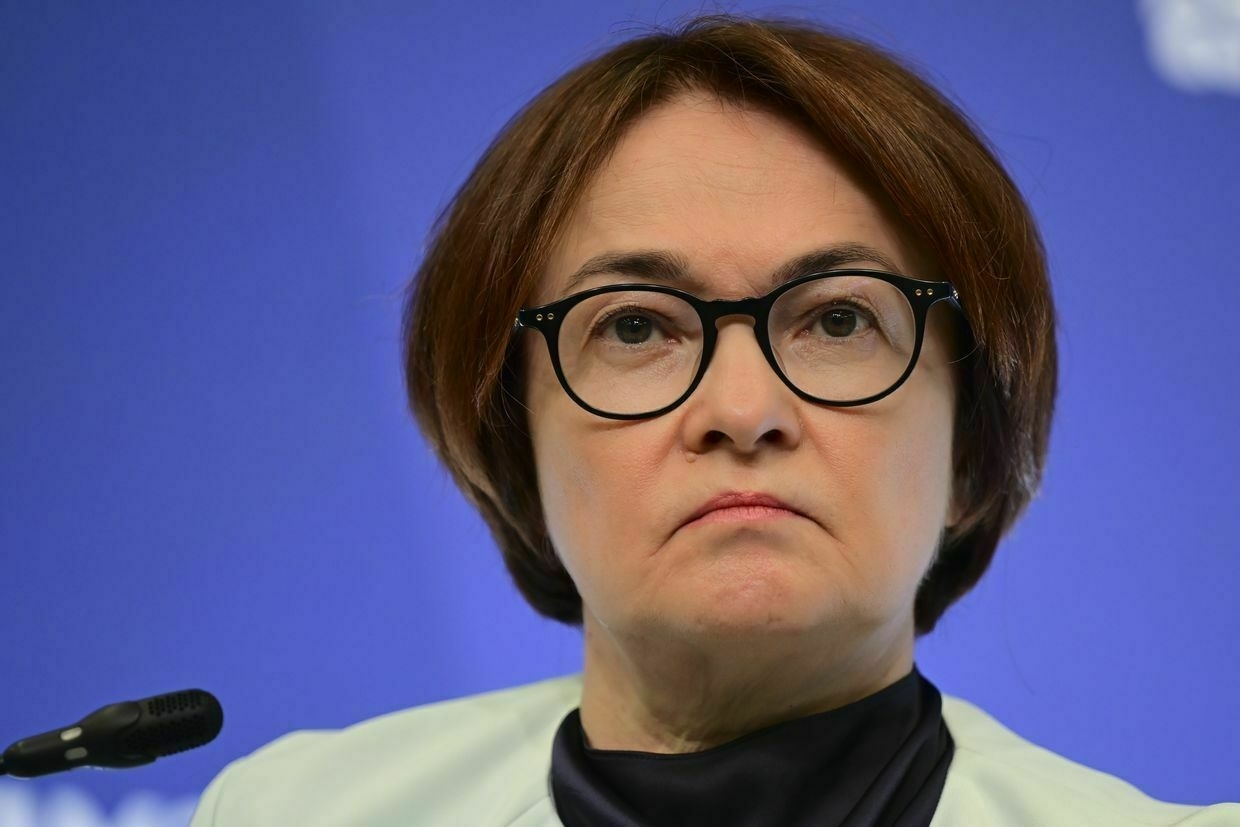
Russia’s wartime economic momentum is fading fast, with key resources nearly exhausted, Russian Central Bank Governor Elvira Nabiullina said, warning that the country can no longer rely on the same tools that sustained growth in the first two years of the full-scale war against Ukraine, the Moscow Times reported on June 19.
Speaking at the St. Petersburg International Economic Forum, Nabiullina said that the Russian economy had been expanding on the back of “free resources,” including labor, industrial capacity, bank capital reserves, and liquid assets from the National Wealth Fund (NWF) — all of which are now reportedly nearing depletion.
“We grew for two years at a fairly high pace because free resources were activated,” she said. “We need to understand that many of those resources have truly been exhausted."
Her comments come after Russia’s ambassador to the U.K., Andrei Kelin, claimed in an interview with CNN this week that Russia is spending “only 5–7%” of its federal budget on the war. Kelin claimed that Russia can continue waging its war, saying Moscow “is winning.”
According to the state statistics agency Rosstat, Russia’s unemployment rate has dropped to a historic low of 2.3%. At the same time, mass emigration and large-scale wartime recruitment have created a labor shortage estimated at 2 million people. Industrial capacity utilization has surged beyond 80%, the highest in modern Russian history.
Ukraine war latest: Russia accidentally admits to its staggering troop losses in UkraineKey developments on June 19: * Russia accidentally admits to its staggering troop losses in Ukraine * Ukraine, Russia carry out another POW exchange under Istanbul deal * North Korea considers sending 25,000 workers to Russia to help produce Shahed drones, media reports * Zelensky appoints Brigadier General Shapovalov as new Ground ForcesThe Kyiv IndependentThe Kyiv Independent news desk
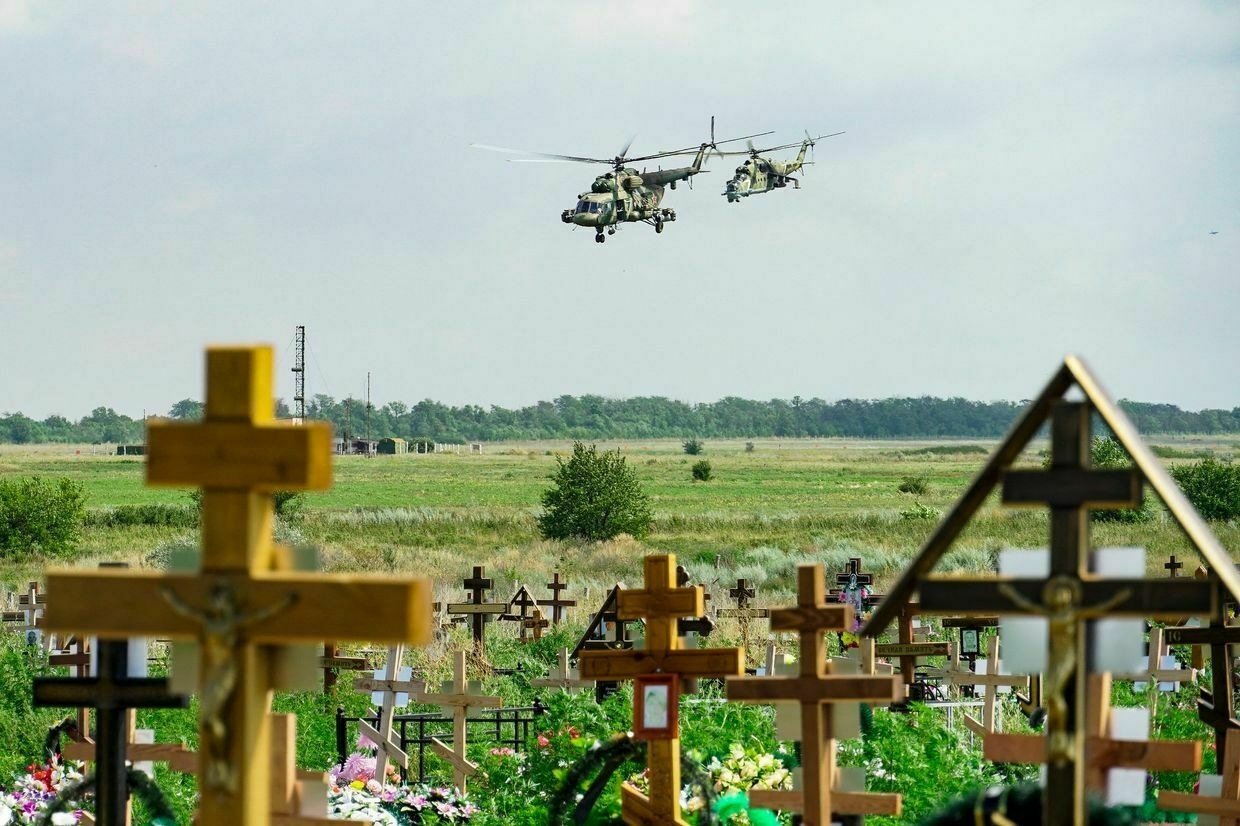
Russia’s economy is now “on the verge of a transition to recession,” Russian Economy Minister Maxim Reshetnikov said at the same forum. Official data show that GDP growth slowed from 4.1% in late 2023 to just 1.4% in the first quarter of 2024, with the economy contracting quarter-on-quarter for the first time since 2022.
Business profits in March fell by one-third overall and dropped by half in the critical oil and gas sector. Industrial growth stagnated at 1.2% year-over-year between January and April, while civilian sectors of the economy began shrinking. Retail turnover growth slowed from 7.2% in December to just 2.4% in April.
An anonymous Russian analyst told Novaya Gazeta Europe that government technocrats are effectively telling Russian President Vladimir Putin it’s time to choose between “war or economy."
During its invasion of Ukraine, Russia has faced rising inflation due to record military spending, pushing the central bank to maintain high interest rates. Under government pressure, the bank cut the rate slightly from 21% to 20% earlier in June, despite concerns about weakened private investment.
Officials have scaled back key development projects and reduced shipments of metals and oil products. Early hopes for recovery in 2025, driven by talks with the U.S., have faded as inflation and sanctions weigh heavily on growth.
As Russian losses in Ukraine hit 1 million, Putin’s war economy heads toward breaking pointRussian losses in Ukraine hit a massive, and grim milestone on June 12 — 1 million Russian soldiers killed or wounded during the 39-month-long full-scale war, according to figures from Kyiv. Although hugely symbolic, the number is unlikely to prompt a change in tactics from Moscow as it gears up forThe Kyiv IndependentChris York
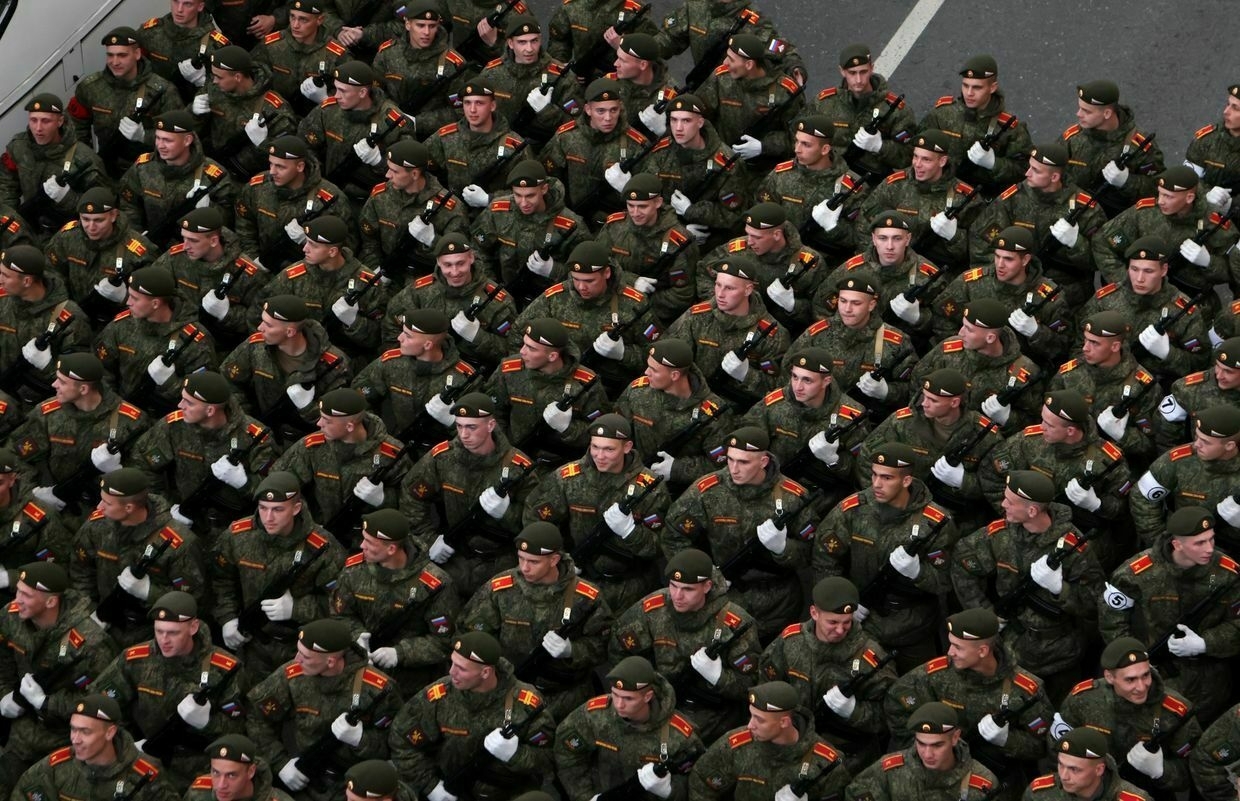
-
Baltics, Nordics, Poland propose Schengen ban for Russians who fought in Ukraine
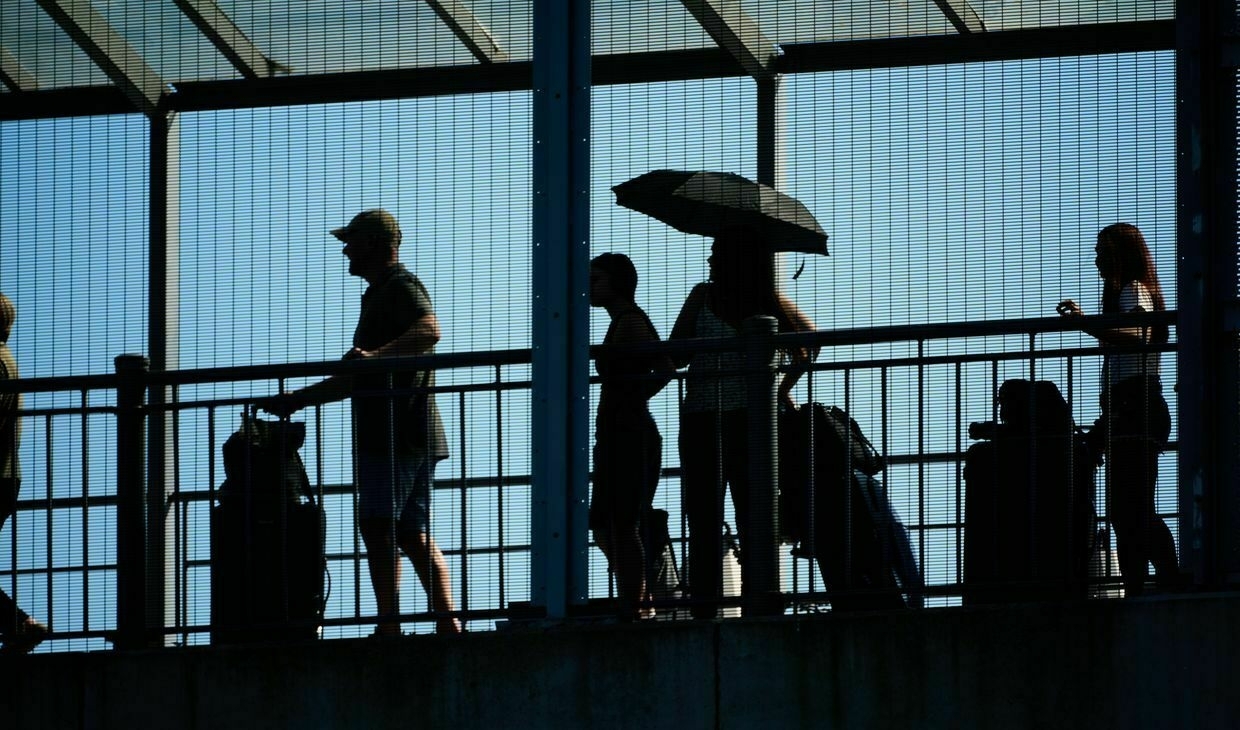
Editor’s note: This story has been updated to include the joint statement issued by the ministers of the Baltic states, Nordic countries, and Poland.
A coalition of European Union countries is pushing to bar Russian citizens who participated in the war against Ukraine from entering the Schengen Area, citing serious security concerns, Estonian broadcaster ERR reported on June 19.
The call comes as Russia increased its hybrid operations targeting the European Union. EU security agencies have repeatedly warned of Russian-linked sabotage operations, including arson attacks, orchestrated by Moscow as part of hybrid warfare strategies.
Interior ministers from the Baltic states, Nordic countries, and Poland met in Tallinn on June 19, where they issued a joint statement confirming their intent to prevent entry into the visa-free Schengen zone for Russians who took part in the war against Ukraine, ERR reported.
“There are hundreds of thousands of Russian citizens who have fought against Ukraine,” Estonian Interior Minister Igor Taro said following the meeting. “We must take a clear stance; these individuals cannot freely travel across Schengen."
“We will not issue them residence permits or visas,” he added. “This group, which has been killing and destroying, poses a very significant security threat to all of us."
The ministers emphasized that this restriction should remain in place even after active hostilities cease in Ukraine.
“Member States should take all necessary measures to ensure that individuals who are or have been contracted by the Russian armed forces or other armed groups acting on behalf of the regime are not allowed to undermine our security or move freely within the Schengen Area,” the joint statement read.
The high-level meeting also included European Commissioner for Home Affairs and Migration Magnus Brunner, as well as representatives from the EU border agency Frontex.
The Schengen Area allows for visa-free travel across 29 European countries for up to 90 days in any 180-day period. While several EU member states have imposed national restrictions on Russian travelers, others continue processing applications, keeping access routes open.
Latvia has been among the most vocal proponents of stricter visa policies for Russian nationals. Latvian Foreign Minister Baiba Braze urged on May 25 all EU countries to suspend visa issuance to Russians, citing escalating security threats from Moscow.
“Latvia calls on the EU countries to halt visa issuance for Russian citizens, citing security concerns,” Braze wrote on X. She noted that Schengen visa approvals for Russian nationals had surged by 25% in 2024 compared to 2023.
Latvia imposed entry restrictions in September 2022 as part of a coordinated effort with Lithuania, Estonia, and Poland. Czechia followed suit in October 2022.
Concerns over the abuse of Schengen visas and diplomatic privileges have intensified amid a wave of suspected Russian sabotage and espionage on EU soil. Polish and Czech authorities have recently led an effort to limit the movement of Russian diplomats within the bloc, targeting individuals allegedly working under diplomatic cover for Russian intelligence services.
Latvia prohibits Russian, Belarusian citizens from purchasing real estateThe bill — which carves out exceptions for EU and Latvian permanent residence holders, Belarusian refugees, and repatriates — establishes the new restrictions under the pretenses of protecting the country’s national security.The Kyiv IndependentDmytro Basmat
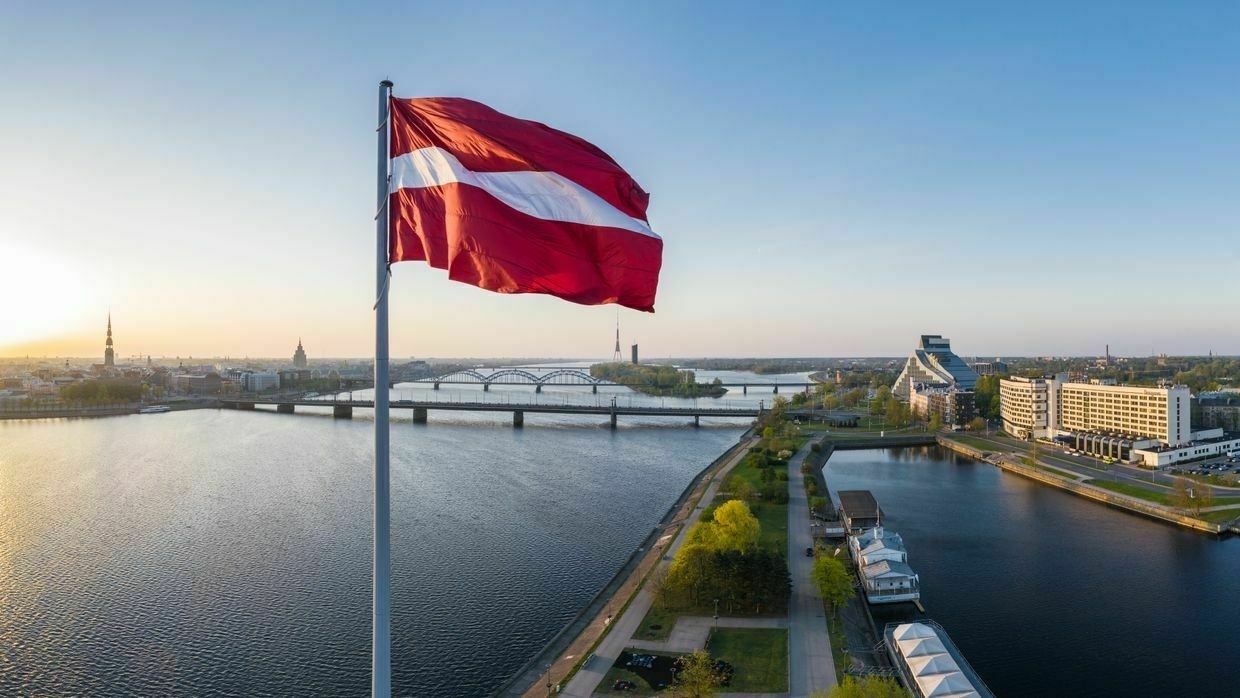
-
2 killed, 39 injured in Russian attacks against Ukraine over past day
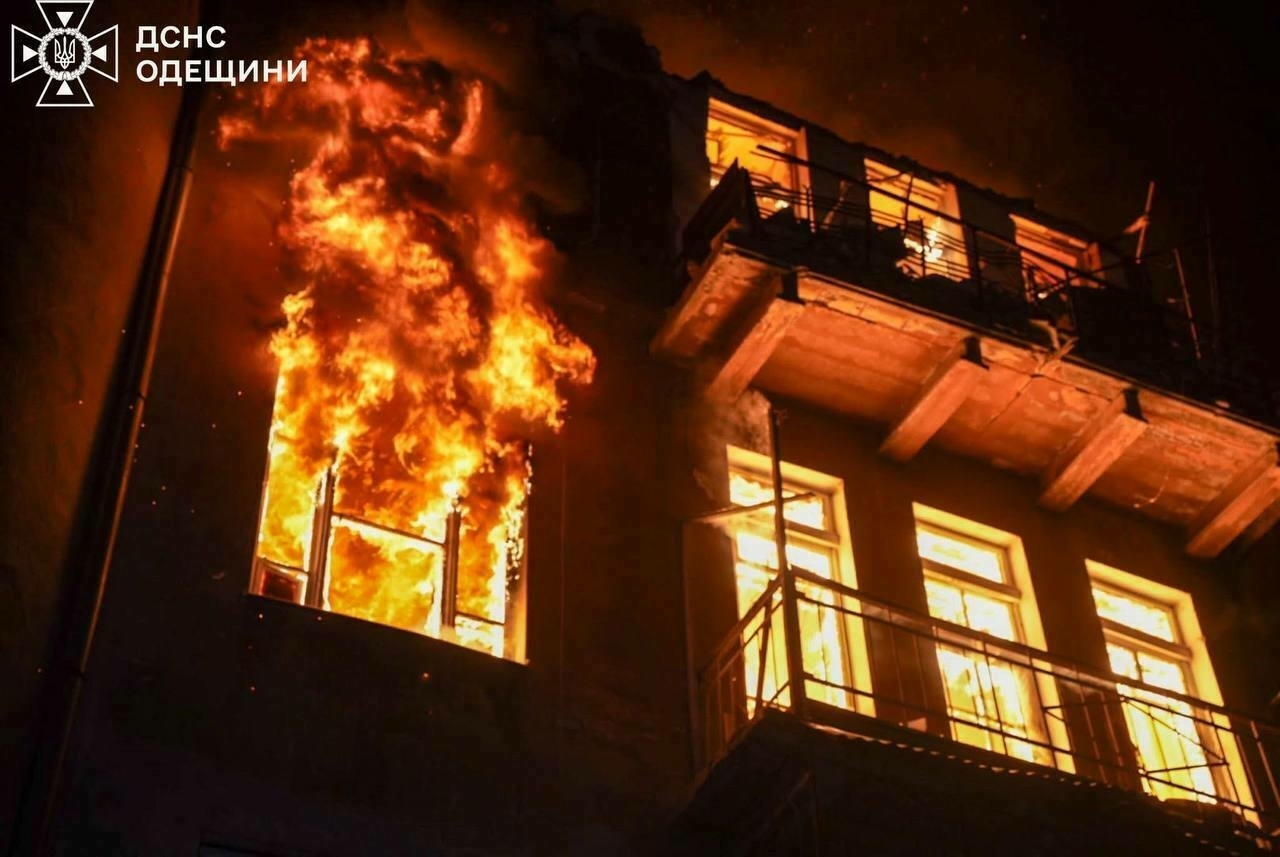
Russian attacks across Ukrainian regions killed two civilians and injured at least 39, including minors, over the past day, regional authorities reported on June 20.
Russian forces launched 86 Shahed-type attack drones and decoys against Ukraine overnight, the Air Force said. Ukrainian air defenses reportedly shot down 34 drones, while 36 disappeared from radars or were intercepted by electronic warfare.
Russia launched “massive” drone attacks against Odesa overnight, authorities reported, resulting in one civilian killed and at least 14 injured, including three emergency workers.
The attack drones struck over 10 targets, including seven residential buildings, and led to multiple large-scale fires. At the site of one of the attacks, a 23-story residential building caught fire between the 18th and 20th floors, and led to the evacuation of over 600 people.
In Dnipropetrovsk Oblast, two men aged 39 and 64 were injured in Russian attacks, Governor Serhii Lysak said. Two industrial facilities, two schools, and four houses were damaged during strikes against the Nikopol district overnight.
In Donetsk Oblast, one person was killed and another injured in Kostiantynivka, while five others were injured elsewhere in the region, according to Governor Vadym Filashkin.
Russian attacks against Kharkiv and eight other settlements in Kharkiv Oblast injured six people, two of them minors, Governor Oleh Syniehubov reported. Multiple residential buildings, houses, a school, warehouses, and other property were damaged.
In Kherson Oblast, 11 people were wounded in Russian strikes, said the regional governor, Oleksandr Prokudin. Seventeen houses were damaged.
There’s loads of video of Israeli air defenses, and none of Ukraine’s — this is whyAs Israel and Iran continue to trade salvos, dramatic footage of air defenses battling ballistic missiles have flooded the internet. Several prominent online commentators have compared the videos coming out of Israel with those from Ukraine, questioning why Russian attacks like those on Kyiv are portrayed in relatively sparse detail,The Kyiv IndependentYuliia Taradiuk
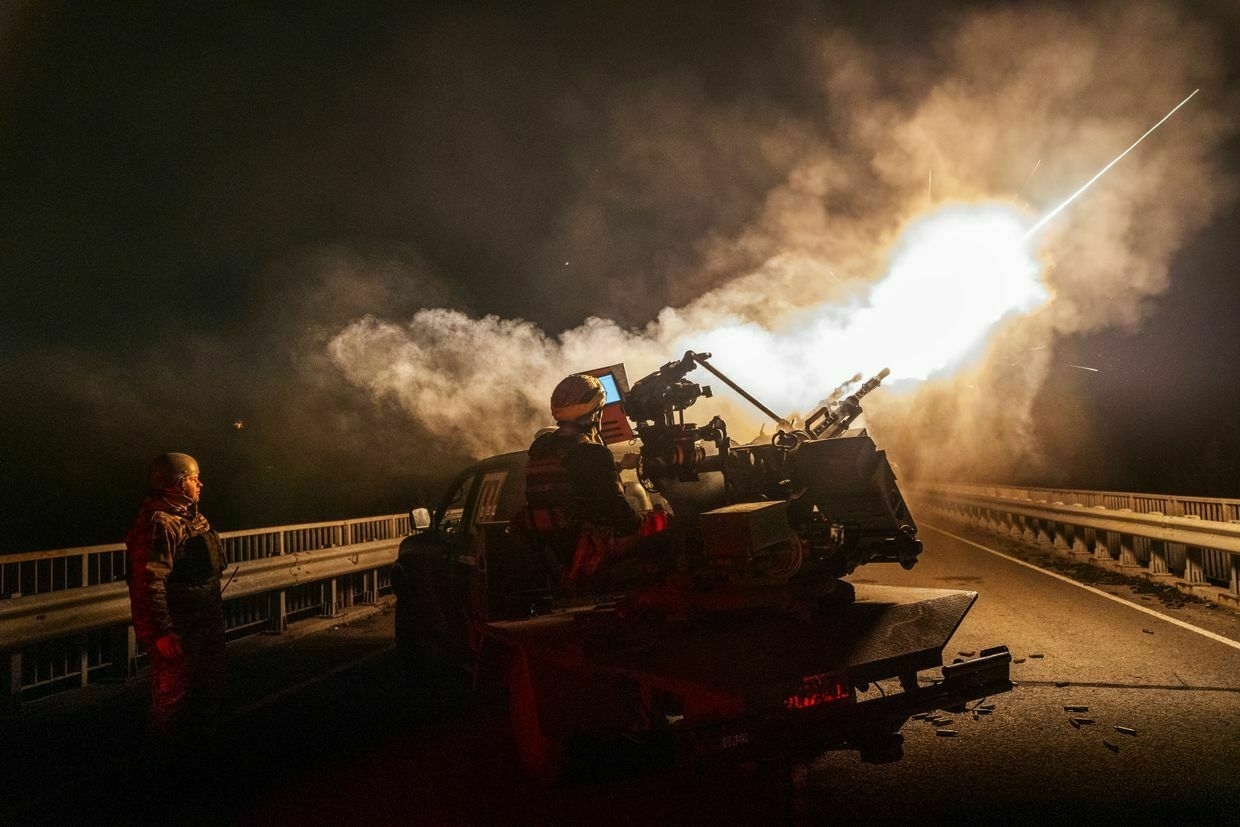
-
Dutch parliament recognizes Soviet 1944 deportation of Crimean Tatars as genocide
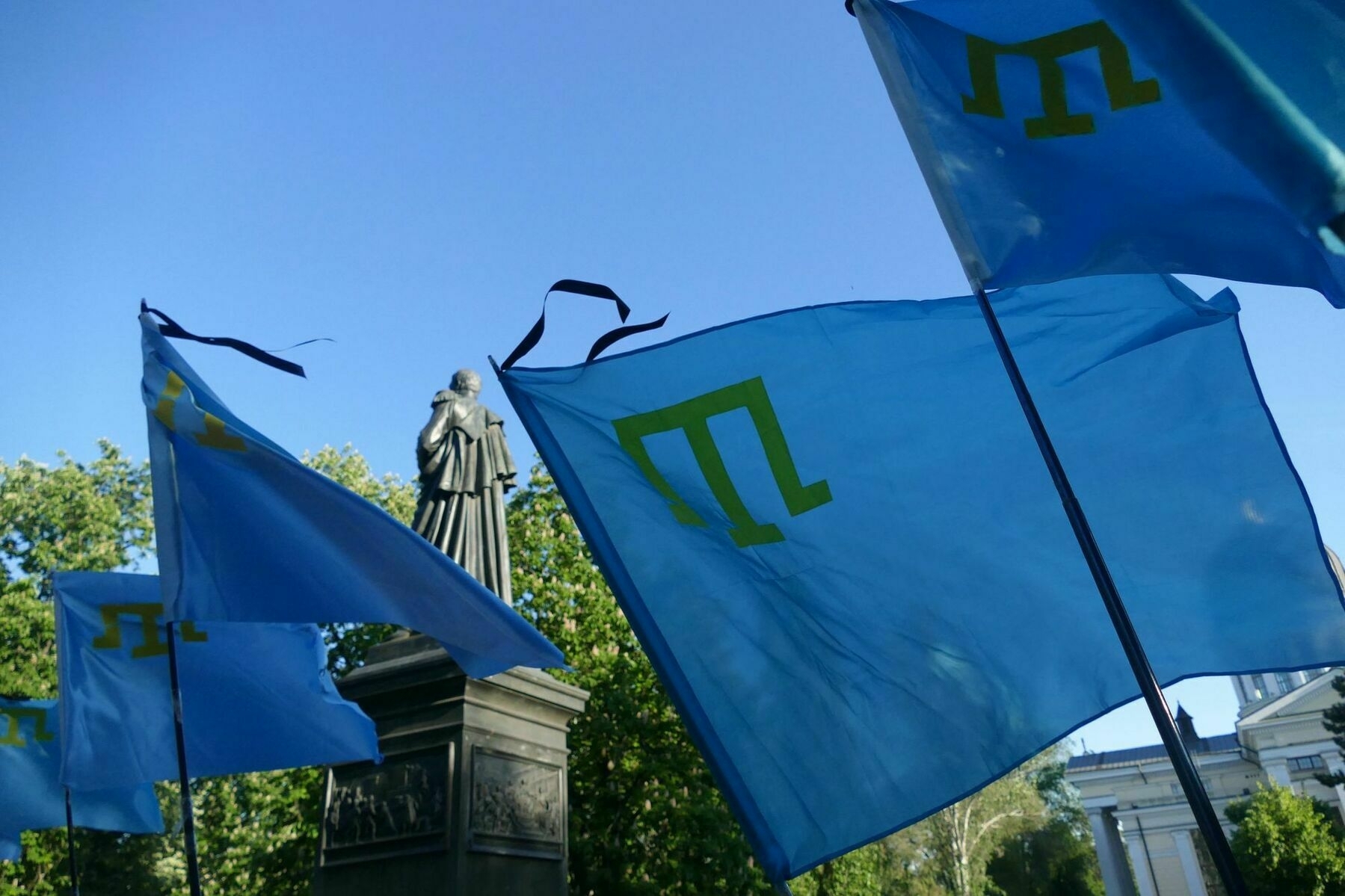
The lower house of the Dutch parliament on June 19 officially recognized the 1944 mass deportation of Crimean Tatars by the Soviet Union as genocide, according to a statement from the parliamentary press service.
The motion cited precedent from other countries that have recognized the forced deportations as genocide, including Poland, the Czech Republic, Canada, Latvia, Lithuania, and Ukraine.
In the adopted text, Dutch lawmakers declared that the Soviet-led deportation of Crimean Tatars, which took place between May 18 and 21, 1944, constitutes genocide by contemporary legal and historical definitions.
The 1944 deportation was carried out under direct orders from Soviet dictator Joseph Stalin, who labeled the entire Crimean Tatar population as traitors following the peninsula’s liberation from Nazi occupation.
Over 190,000 Tatars were forcibly removed from Crimea in a matter of days, though some estimates place the number closer to 430,000, and sent to remote areas in Central Asia, mainly Uzbekistan, in brutal conditions that led to mass deaths.
The document pointed to the ongoing repression of Crimean Tatars under Russian occupation since 2014. It said that “many Crimean Tatars have been unjustly imprisoned, subjected to torture by the Russian Federation, or forcibly disappeared,” and added that “Russia has likely continued a policy of genocide against Crimean Tatars."
Foreign Minister Andrii Sybiha welcomed the decision, calling it “a powerful gesture of solidarity with the Crimean Tatar people, who are still facing persecution under Russia’s temporary occupation of the Ukrainian Crimea peninsula."
Sybiha noted that the Netherlands is now the seventh country to formally recognize the deportation as genocide and urged other nations to follow suit.
“Recognizing this historical injustice is critical not only for establishing truth and justice, but also for preventing future atrocities,” the minister wrote.
Ukraine’s parliament recognized the deportation as genocide in 2015 and established May 18 as the official Day of Remembrance for the Victims of the Genocide of the Crimean Tatar People.
Who are the Crimean Tatars?Crimean Tatars are one of Ukraine’s indigenous peoples who have been central to Crimea’s history for many centuries.The Kyiv IndependentAnastasiia Lapatina

-
Russia would react 'very negatively' to Iran leader's assassination, Kremlin says
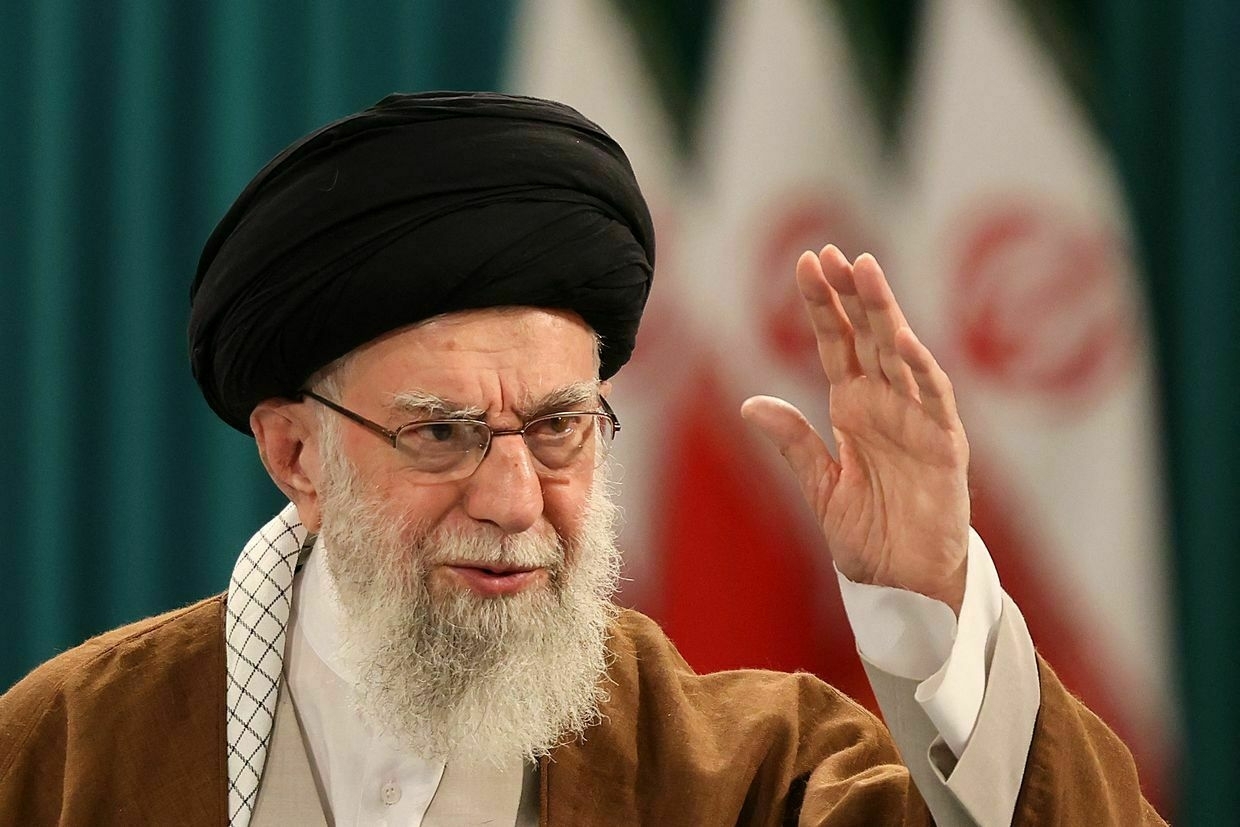
Regime change in Iran is “unacceptable” and the assassination of Supreme Leader Ayatollah Ali Khamenei would “open Pandora’s box,” Kremlin spokesperson Dmitry Peskov told Sky News in an interview published June 20.
Russia, which signed a strategic partnership with Iran in January, has reportedly grown increasingly alarmed as the United States weighs deeper involvement in Israel’s military campaign against Tehran.
Earlier, U.S. President Donald Trump suggested the option of assassinating Iran’s Supreme Leader Khamenei remains on the table, though he said the U.S. does not plan to act on it “for now.”
The comment followed reporting that Israel had earlier proposed a plan to kill Khamenei — a proposal Trump initially rejected, according to a U.S. official cited by AP.
Peskov warned that any attempt at regime change in Tehran or threats to its leadership would “open Pandora’s box,” deepening instability across the Middle East and beyond.
"(Regime change in Iran) is unimaginable," Peskov said. “It should be unacceptable, even talking about that should be unacceptable for everyone.” He added that the killing of Khamenei would promote extremist sentiment inside Iran and provoke unpredictable consequences.
“The situation is extremely tense and is dangerous not only for the region but globally,” Peskov said. “An enlargement of the composition of the participants of the conflict is potentially even more dangerous. It will lead only to another circle of confrontation and escalation of tension in the region."
Russia has been a close regional ally of Iran, while Tehran supplied drones and ballistic missiles for Moscow’s war against Ukraine. Meanwhile, Israel has maintained a delicate balance, refraining from joining Western sanctions against Moscow while condemning Iran’s role in supporting Russia’s war effort.
Asked on whether Moscow would respond to a possible strike against Khamenei, Peskov declined to specify, saying any reaction would come from “inside Iran."
Peskov also commented on Trump’s dismissive response to Russian President Vladimir Putin’s offer to mediate between Israel and Iran. The U.S. president reportedly told Putin to “mediate your own conflict” in reference to the Russia-Ukraine war. Peskov shrugged off the remark, calling Trump’s language “unique” and urging mutual tolerance.
Tensions have risen between the U.S. and Iran following a wave of Israeli air strikes on Iranian territory, beginning June 13. The attacks targeted nuclear infrastructure and senior Iranian commanders, prompting Iranian missile strikes on Tel Aviv and other Israeli cities.
Tehran claimed that at least 224 Iranian civilians were killed on June 16, though the figures remain unverified.
Russia has offered to mediate the crisis, with Putin reportedly reaching out to both Iranian President Masoud Pezeshkian and Israeli Prime Minister Benjamin Netanyahu. Tel Aviv, according to the Kremlin, is reluctant to accept the proposal, while the EU leaders rejected it, citing Russia’s aggression in Ukraine and its close military ties to Iran.
There’s loads of video of Israeli air defenses, and none of Ukraine’s — this is whyAs Israel and Iran continue to trade salvos, dramatic footage of air defenses battling ballistic missiles have flooded the internet. Several prominent online commentators have compared the videos coming out of Israel with those from Ukraine, questioning why Russian attacks like those on Kyiv are portrayed in relatively sparse detail,The Kyiv IndependentYuliia Taradiuk
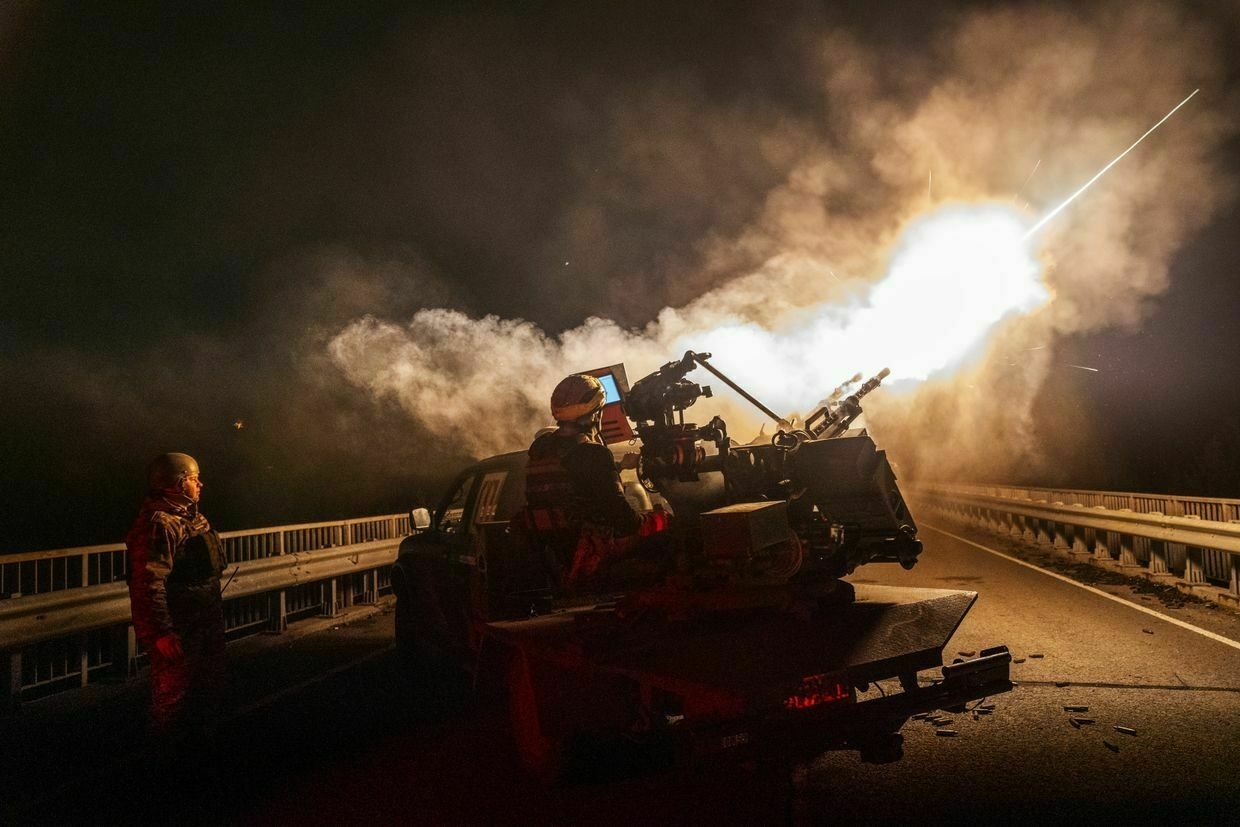
-
General Staff: Russia has lost 1,009,330 troops in Ukraine since Feb. 24, 2022
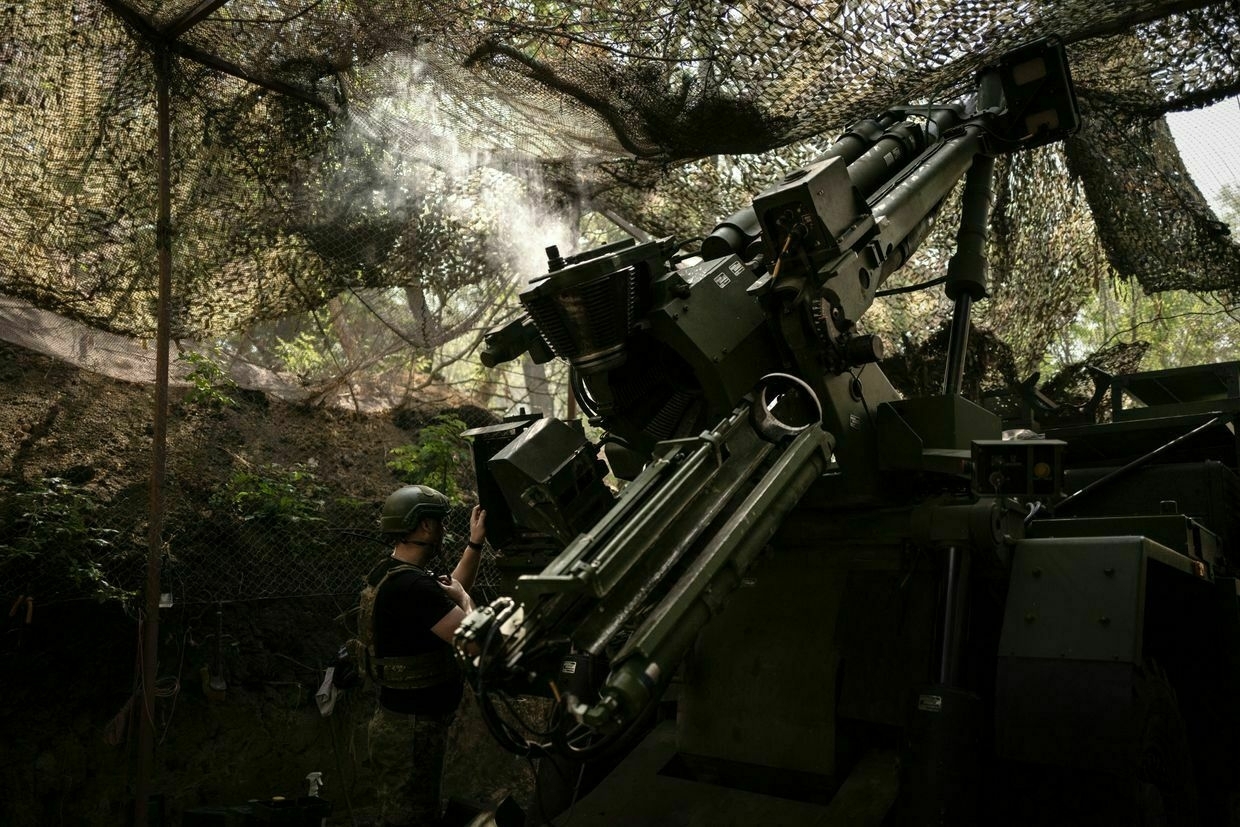
Russia has lost 1,009,330 troops in Ukraine since the beginning of its full-scale invasion on Feb. 24, 2022, the General Staff of Ukraine’s Armed Forces reported on June 20.
The number includes 1,090 casualties that Russian forces suffered just over the past day.
According to the report, Russia has also lost 10,954 tanks, 22,860 armored fighting vehicles, 52,501 vehicles and fuel tanks, 29,374 artillery systems, 1,421 multiple launch rocket systems, 1,188 air defense systems, 416 airplanes, 337 helicopters, 41,299 drones, 3,369 cruise missiles, 28 ships and boats, and one submarine.
Russian losses ‘entirely justified,’ Zelensky saysPresident Volodymyr Zelensky said on June 19 that he held talks with the SBU about deep strikes in Russia. “Russia must continue to suffer entirely justified losses due to its aggression.”The Kyiv IndependentAbbey Fenbert
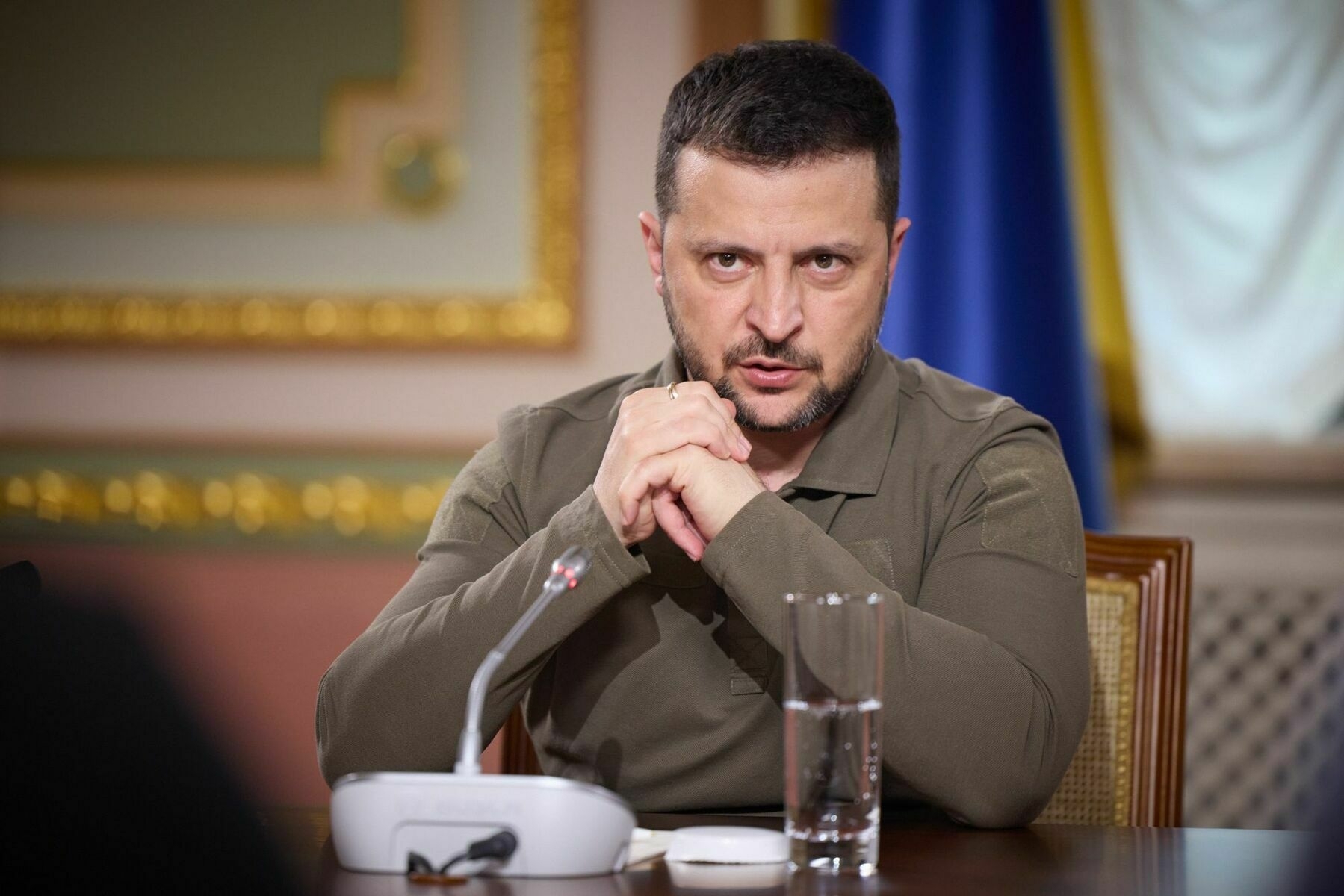
-
Latvia prohibits Russian, Belarusian citizens from purchasing real estate
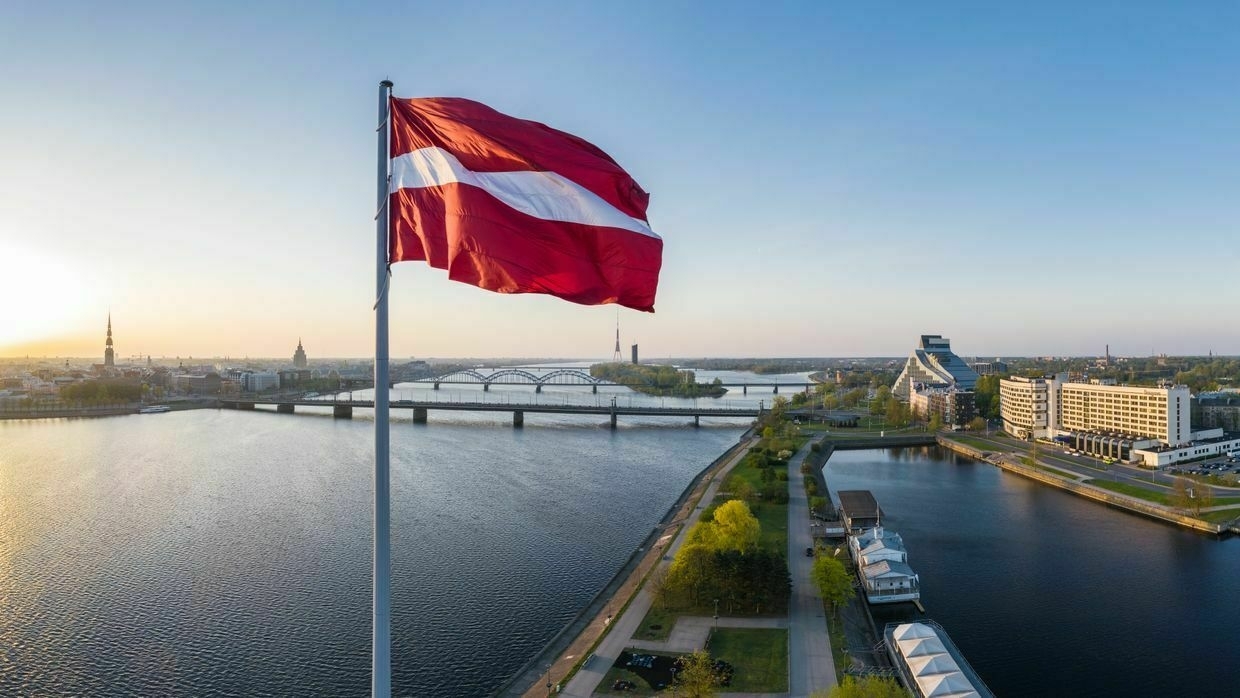
Latvia’s parliament adopted a bill on June 19 that prohibits citizens of Russia and Belarus from purchasing real estate in the country, Latvian media reported.
The bill — which carves out exceptions for EU and Latvian permanent residence holders, Belarusian refugees, and repatriates — establishes the new restrictions under the pretenses of protecting the country’s national security.
In addition to citizens, the bill prohibits entities that are at least 25% owned by Russian or Belarusian nationals from purchasing property.
“This is a step to limit the influence and presence in Latvia of persons and companies that are adverse to the country,” said Agnese Krasta, an Estonian member of parliament and one of the authors of the initiative.
Latvia, which borders both Russia and Estonia, is widely viewed as one of the most likely targets for a future Russian attack on NATO or the European Union. As the war in Ukraine continues to rage on, Latvia has taken action to increase civil preparedness measures and has drafted plans to relocate a quarter of its population in the case of war.
EU intelligence and security agencies have warned of mounting Russian sabotage operations, including several arson attacks believed to have been coordinated by Moscow.
Latvia joins Finland in imposing a ban on Russians from buying, as Baltic and Nordic countries continue to impose restrictions on Russia over its aggression in the region.
In September 2022, Latvia imposed entry restrictions on Russian citizens as part of a joint agreement with Lithuania, Estonia, and Poland.
Since the start of Russia’s full-scale invasion in 2022, Latvia has been one of Ukraine’s most vocal backers.
The Baltic state ranks among Europe’s top defense spenders, allocating over 3% of GDP to defense in 2025, according to NATO estimates.
Diplomacy in crisis: G7 letdowns reveal limits to Western solidarity on UkraineKANANASKIS, Canada — The Group of Seven (G7) Leaders’ Summit ended on June 17 with no joint statement in support of Ukraine, no commitments to provide desperately needed U.S. weapons, and no meeting between President Volodymyr Zelensky and U.S. President Donald Trump. The Ukrainian delegation headed into the summit,The Kyiv IndependentDmytro Basmat
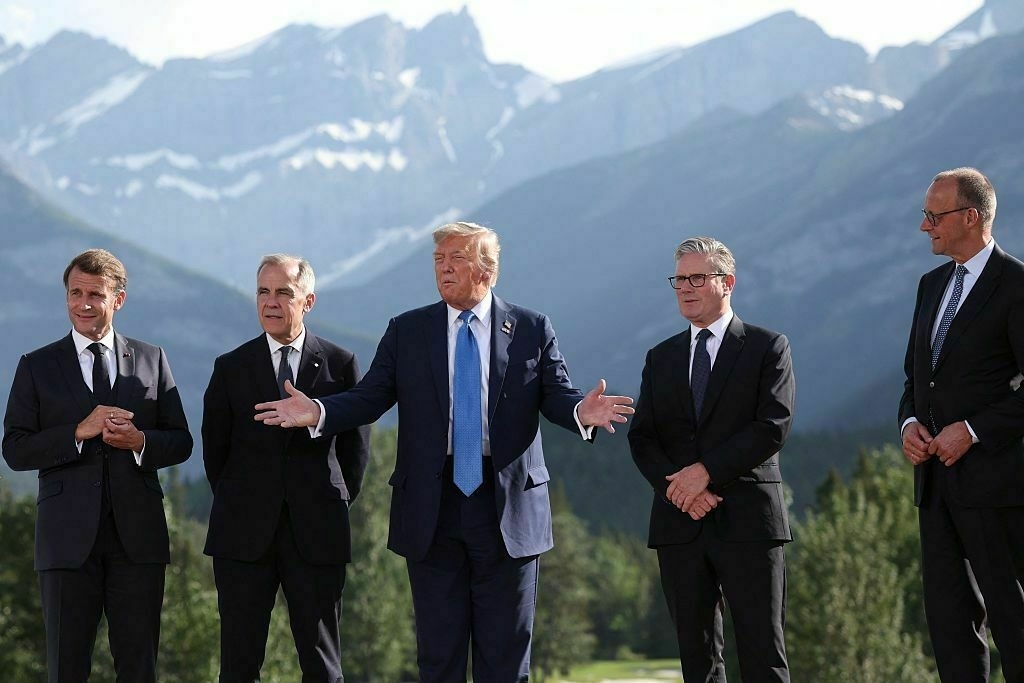
-
'Massive' Russian drone attacks on residential buildings in Odesa injure 13
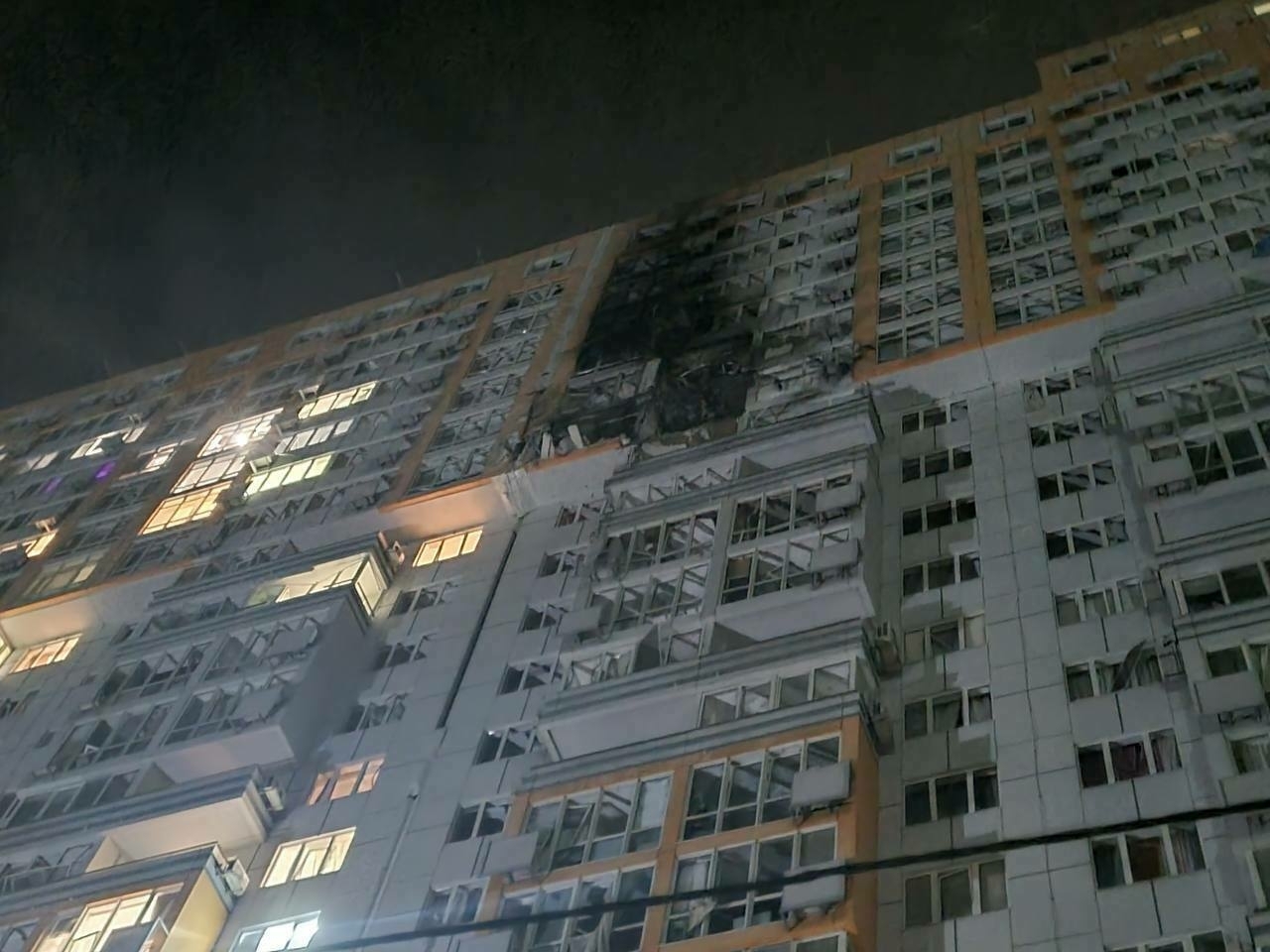
Editor’s note: This is a developing story and is being updated.
Russian forces struck residential buildings in Odesa overnight on June 20, injuring at least 13 people, including three emergency workers, Ukraine’s State Emergency Service reported.
The attack, which the service described as “massive,” rang out around 1 a.m. local time. The attack drones struck over 10 targets, including seven residential building, and led to multiple large-scale fires.
At the site of one of the attacks, a 23-story residential building caught fire between the 18th and 20th floors, and led to the evacuation of over 600 people.
In a separate attack on a four-story building within the city, three firefighters were injured when structural elements collapsed on the responders. The building is described as being “completely engulfed in flames,” according to the State Emergency Service.
The three injured firefighters are currently hospitalized in stable condition. Additional information on the attacks as well as casualties are being clarified as search efforts under rubble and debris continue.
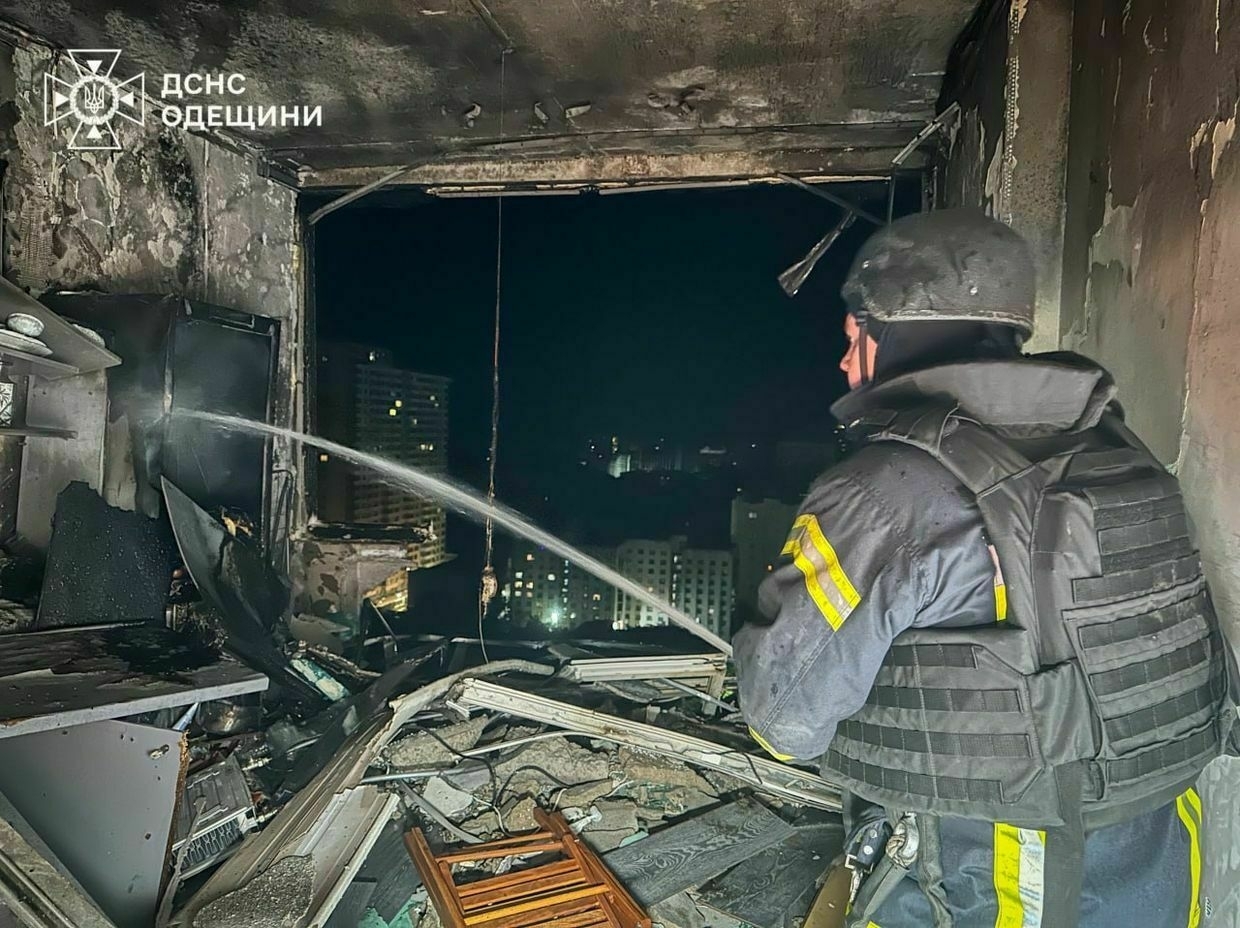
Firefighters extinguish a fire at a residential building in Odesa on June 20, 2025 following a Russian drone attack that injured at least 13 people, including three firefighters. (Ukraine State Emergency Service/Telegram) 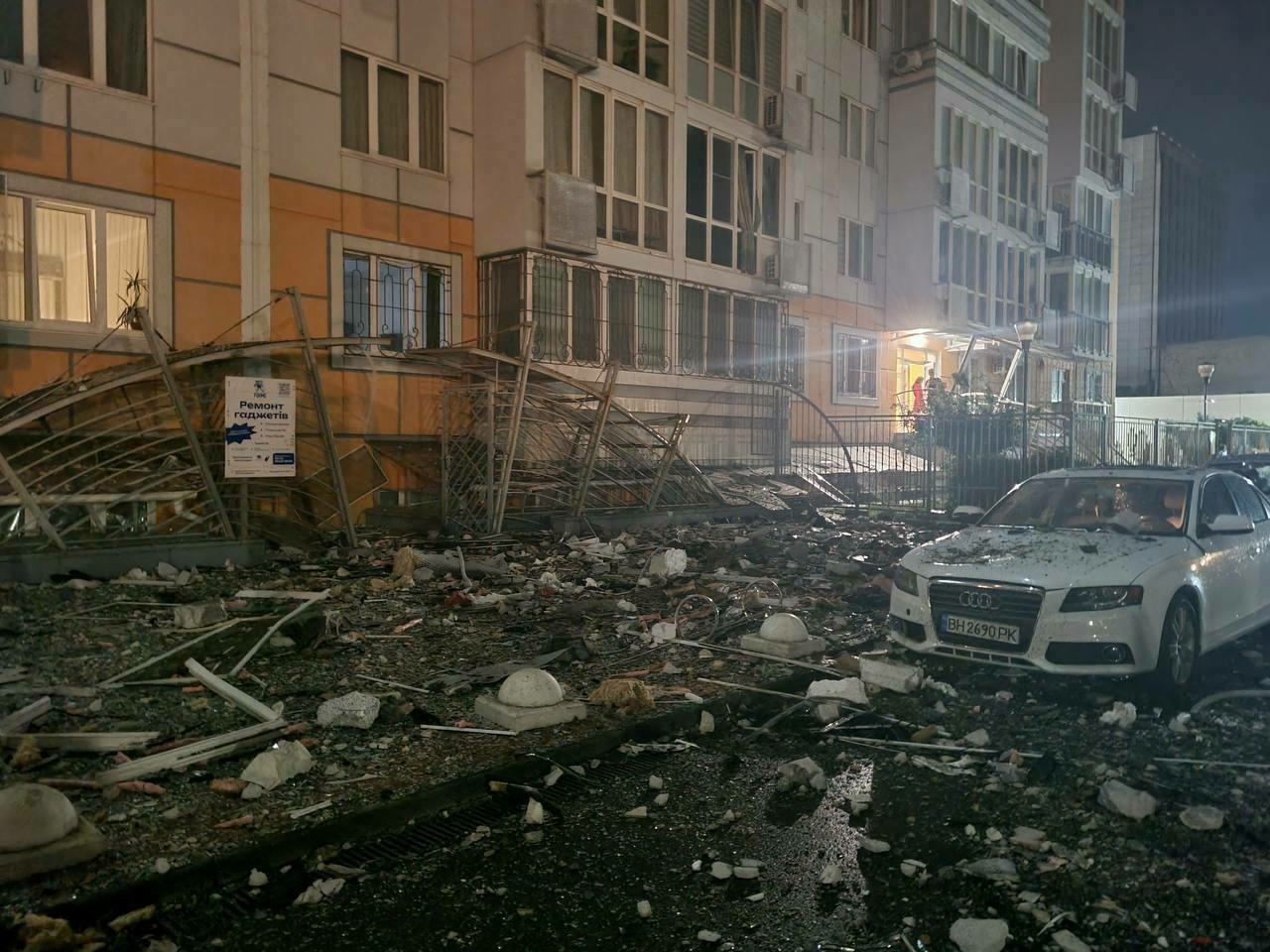
The aftermath of a Russian drone attack on a residential building in Odesa on June 20, 2025. The attacks on the city injured at least 13 people, including three firefighters. (Odesa Oblast Governor Oleh Kiper/Telegram) Odesa, a port city on Ukraine’s Black Sea coast with a population of around 1 million, has been a frequent target of Russian attacks throughout the full-scale war.
On June 10, a missile and drone attack on Odesa killed two people and injure eight.
Russia has continued to increase the frequency and severity of its attacks on Ukrainian cities, while rejecting a ceasefire in Ukraine. Overnight on June 17, Russia launched one of its largest attacks on Kyiv since the start of full-scale war in February 2022, killing 30 people and injuring 172 others.
‘A brutal strike’ — Massive Russian missile and drone attack hits Kyiv, killing 30, injuring 172At least 28 people have been killed and 134 others injured after a mass Russian missile and drone attack on Kyiv overnight on June 17.The Kyiv IndependentOlena Goncharova
